— With inputs from exclusive Interviews with Jason M. Friedman, Group Director of Brand and Product, Shinta Mani Mustang & Bill Bensley, Architect & Interior Designer.
Nestled in the beautiful Mustang Valley, cocooned by rugged landscapes and ancient traditions, lies a sanctuary that marries opulence with authenticity—Shinta Mani Mustang, a distinguished property in the Bensley Collection. This luxury address in Nepal seamlessly blends Mustang's culture and nature into every detail of the property. From its pristine remoteness to the vibrant local team members, every aspect of Shinta Mani Mustang reflects a deep-rooted connection to the land and its people, offering a truly immersive and enriching experience.
In this exclusive interview with Jason M. Friedman, Group Director of Shinta Mani Brand and Product, and Bill Bensley Architect & Interior Designer, we delve into the artistry and ingenuity defining Shinta Mani Mustang.
Design Inspiration by Bill Bensley: Reflecting Mustang Valley's Culture and Nature
Bill Bensley's design inspiration for Shinta Mani Mustang reflects the culture and nature of the Mustang Valley by integrating elements that capture the region's authenticity and remoteness. Bill Bensley shares, “The south and north of the Mustang Valley are so different. Where our site is located in the North, it’s really like going back in time 1,000 years. There are barely any TV antennas, few cars, and little electricity. Every day, livestock walk back from the fields into villages, and even down the stairs of some homes. The biggest town has just four streets, which wrap around the main fort. My goal was to give our guests all the comforts one expects at a Bensley Collection Hotel - electricity, internet, plush beds, gorgeous cocktails etc – but all while keeping that intense feeling of authenticity and remoteness.”
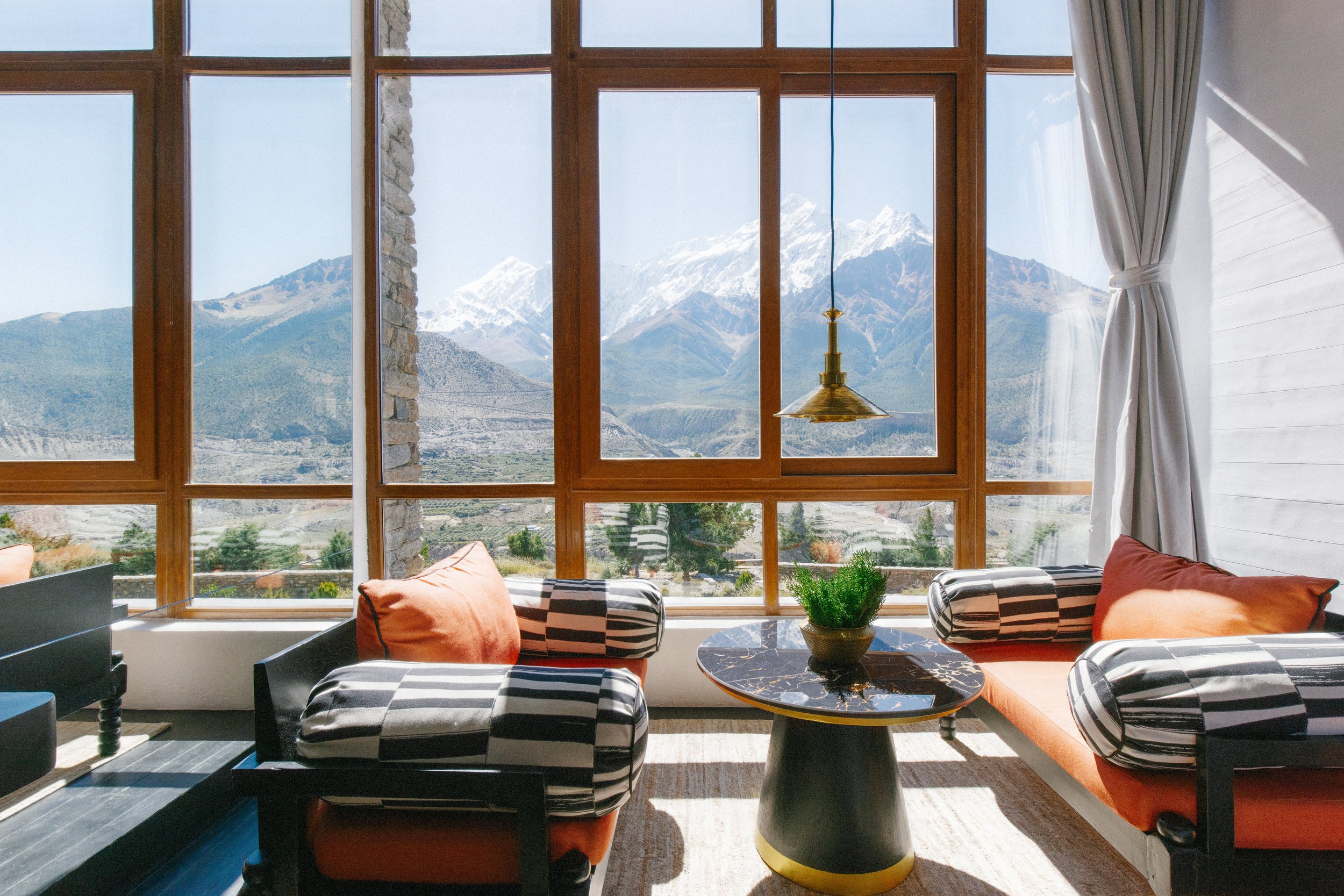
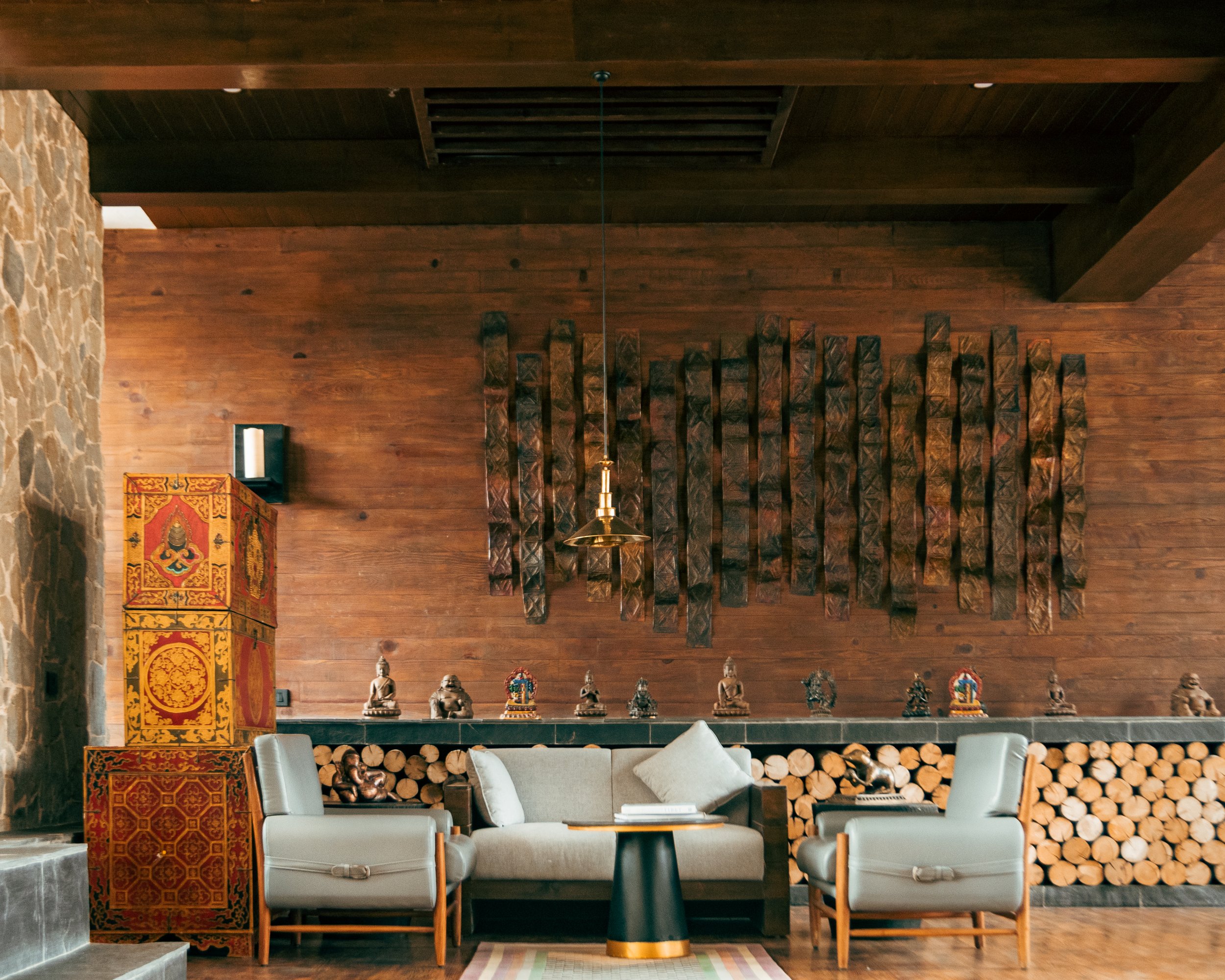
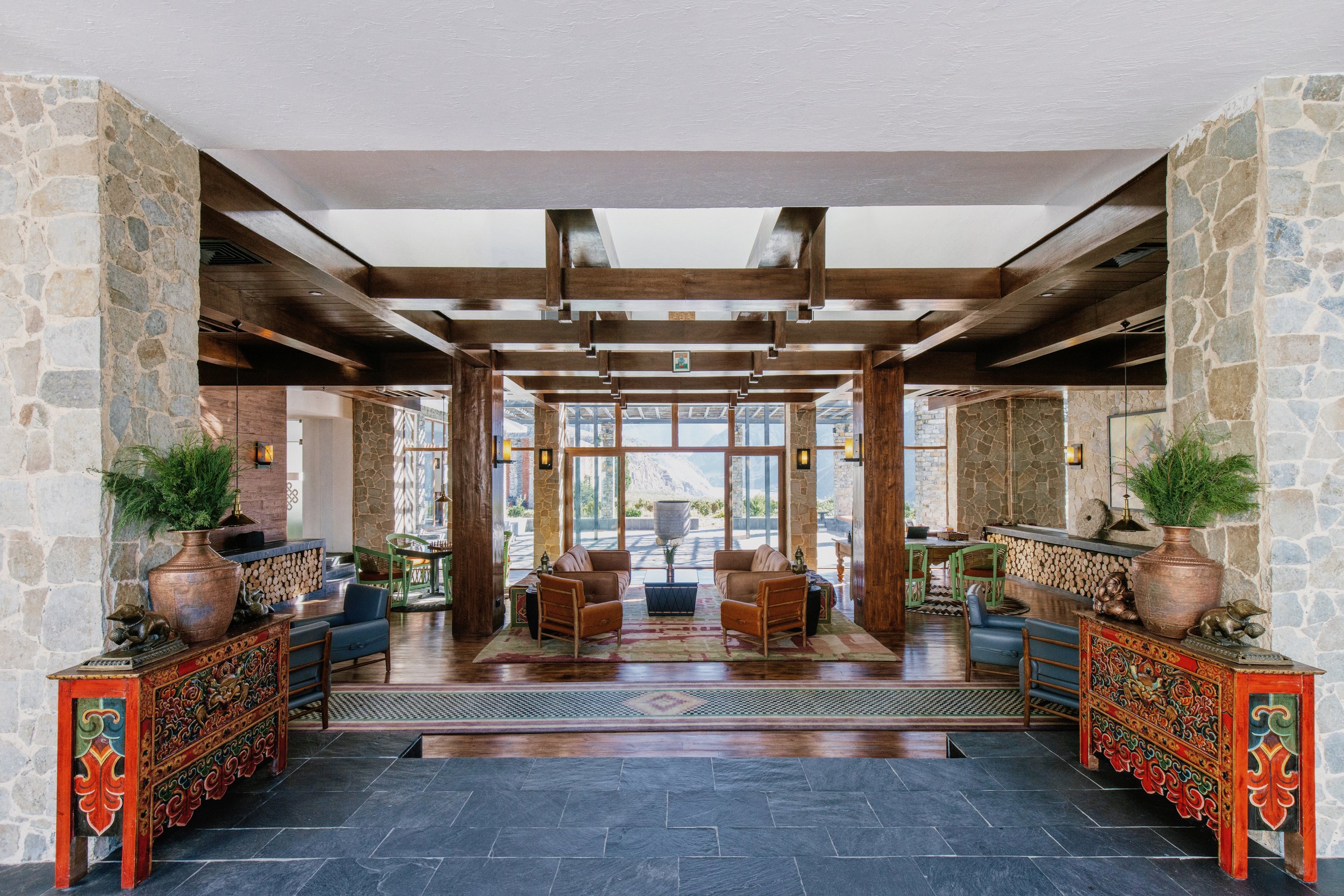
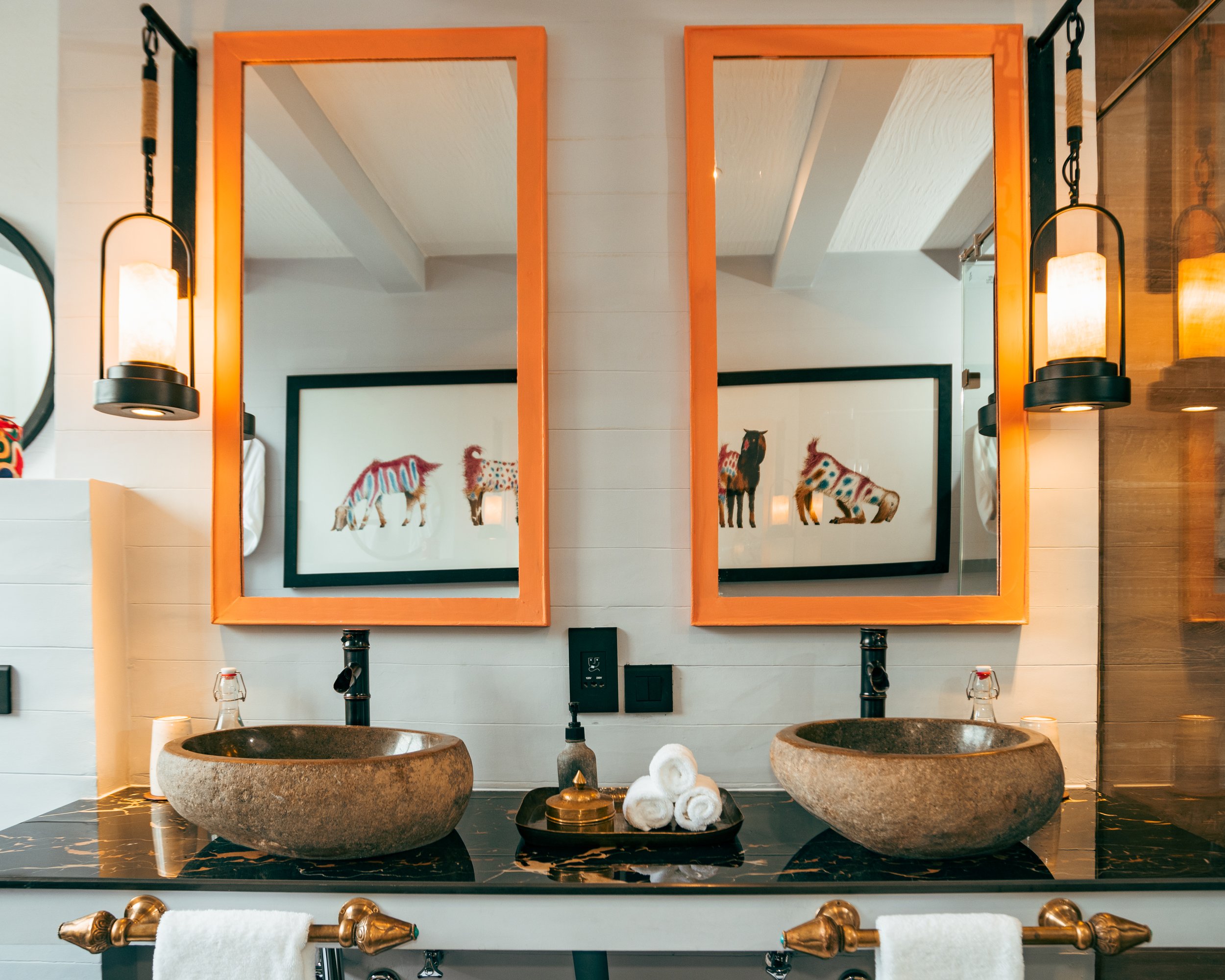
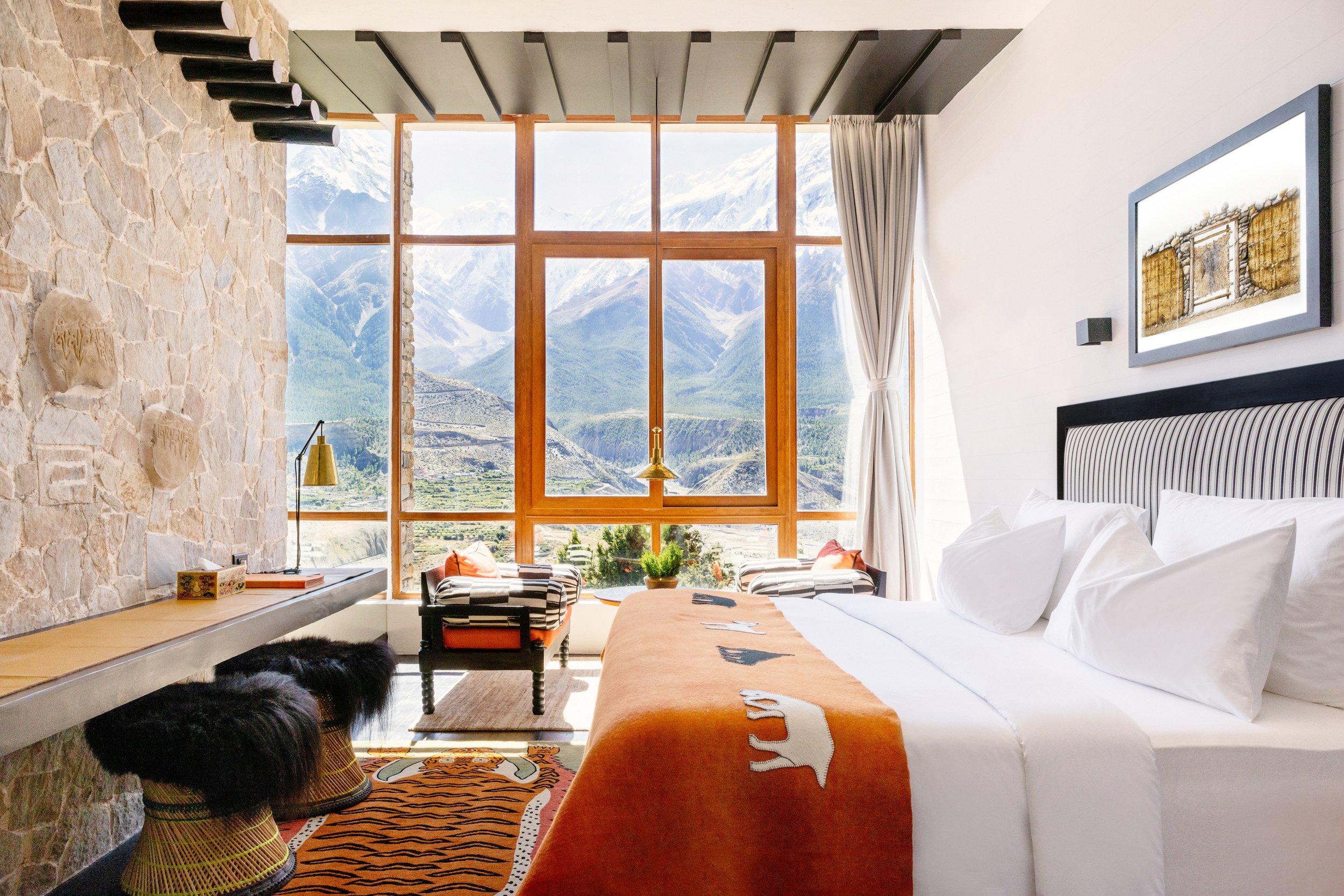
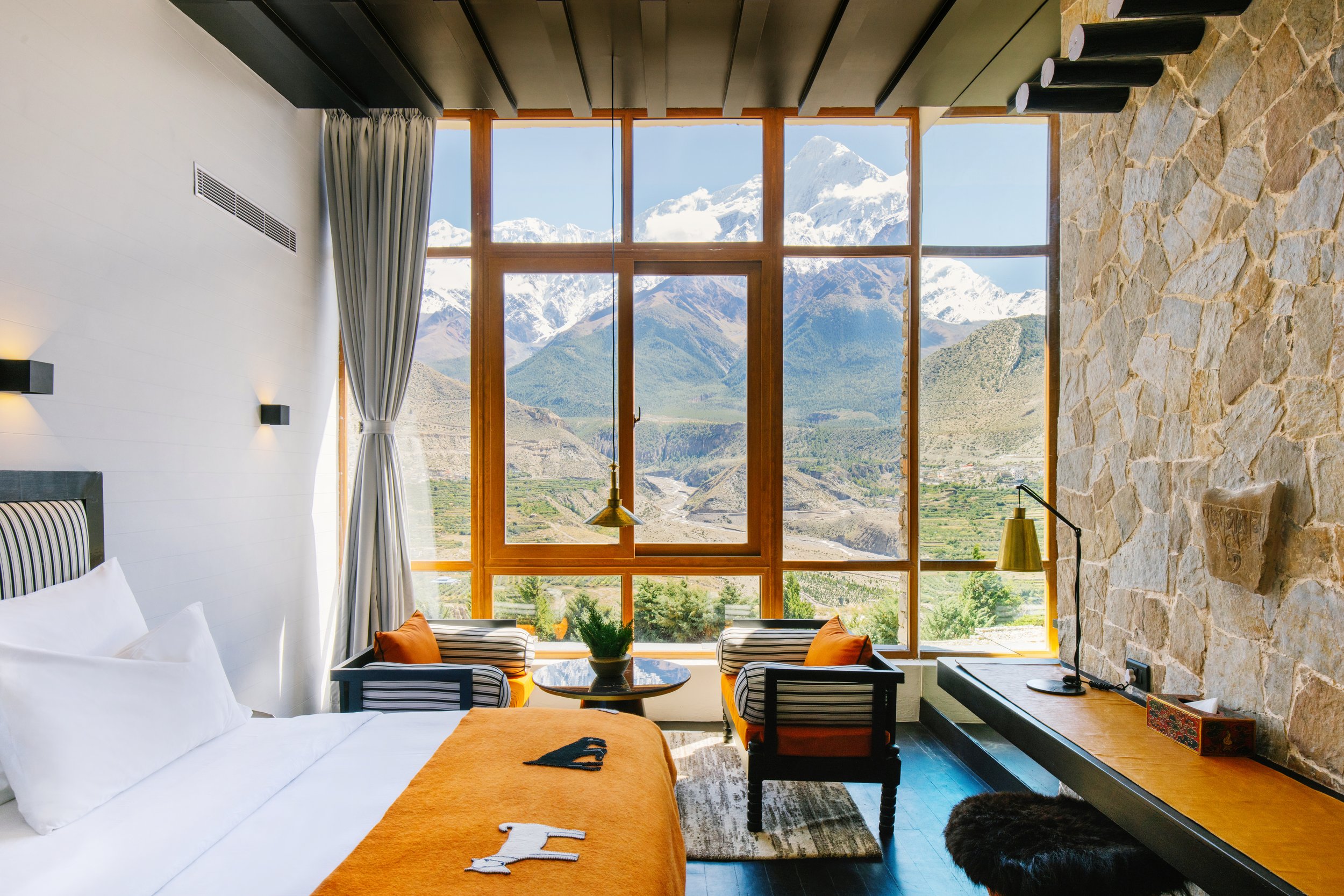
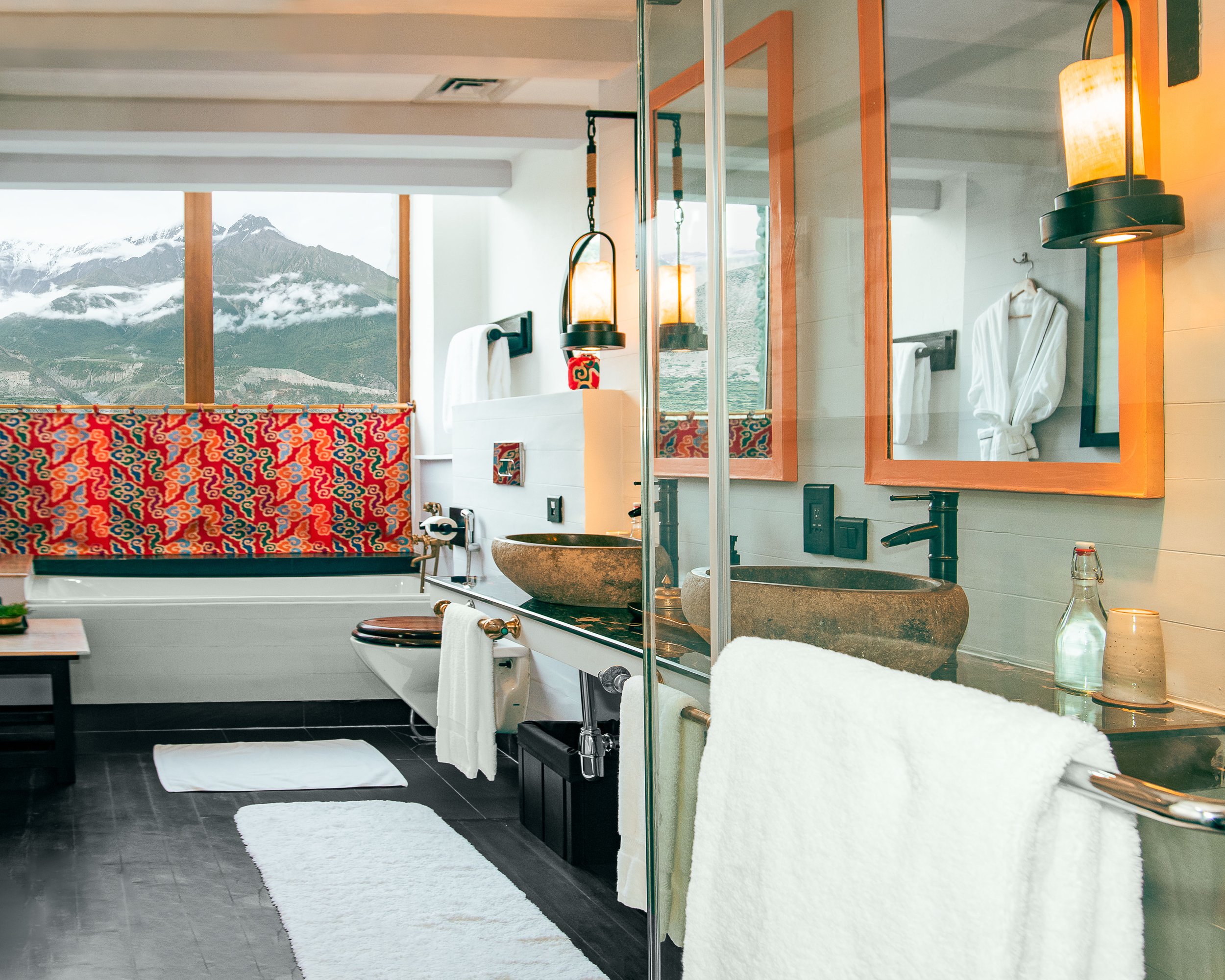
He further adds, “What I find most interesting in this region is the symbolism one finds in the architecture and the way the people of Mustang use dirt. I went to see 3 local clay quarries, each with its own distinct colours: dove grey, terracotta red, and a yellowish beige. These are each bestowed with a different meaning: prosperity, knowledge, and longevity. It is this unique way of seeing the world which we want to carry throughout the experience. One can see these colours all over the region, not just in the mountains, cliffs, and landscape, but in the architecture, so I made a deliberate effort to bring a very primitive type of architecture to the fore.” Elements like locally sourced materials, traditional Tibetan conch shells, and Sanskrit poems engraved on slate reflect the unique culture of Mustang. The design celebrates animism and the region's connection to nature, creating an experience that transports guests to "another world."
Unique Local Team Members: Wellness Doctor and Thakali Cuisine Chef
At Shinta Mani Mustang, guests have the privilege of experiencing a blend of ancient healing traditions and authentic culinary delights, curated by unique local team members which contribute to the holistic and immersive experience offered at Shinta Mani Mustang, combining wellness, cultural immersion, and community engagement for guests seeking a unique and enriching retreat.
1. Amchi Tsewang Gyurme Gurung: He is from a long line of Amchis serving Jomsom and surrounding regions in Mustang. He is the 11th recorded Amchi in his lineage of SoRig practitioners. Amchi Tsewang Gyurme Gurung is known for his deep knowledge and skills in SoRig healing science, which integrates medicinal knowledge with Buddhist philosophy. He has studied in Kathmandu and attended Chagpori Tibetan Medical College in Darjeeling, India. Amchi Tsewang Gyurme Gurung has travelled internationally to countries like Bhutan, China, Thailand, the US, Germany, and France to share his expertise and help people with his healing science. At Shinta Mani Mustang, he offers personal health and wellness evaluations at the SoRig Wellness Center.
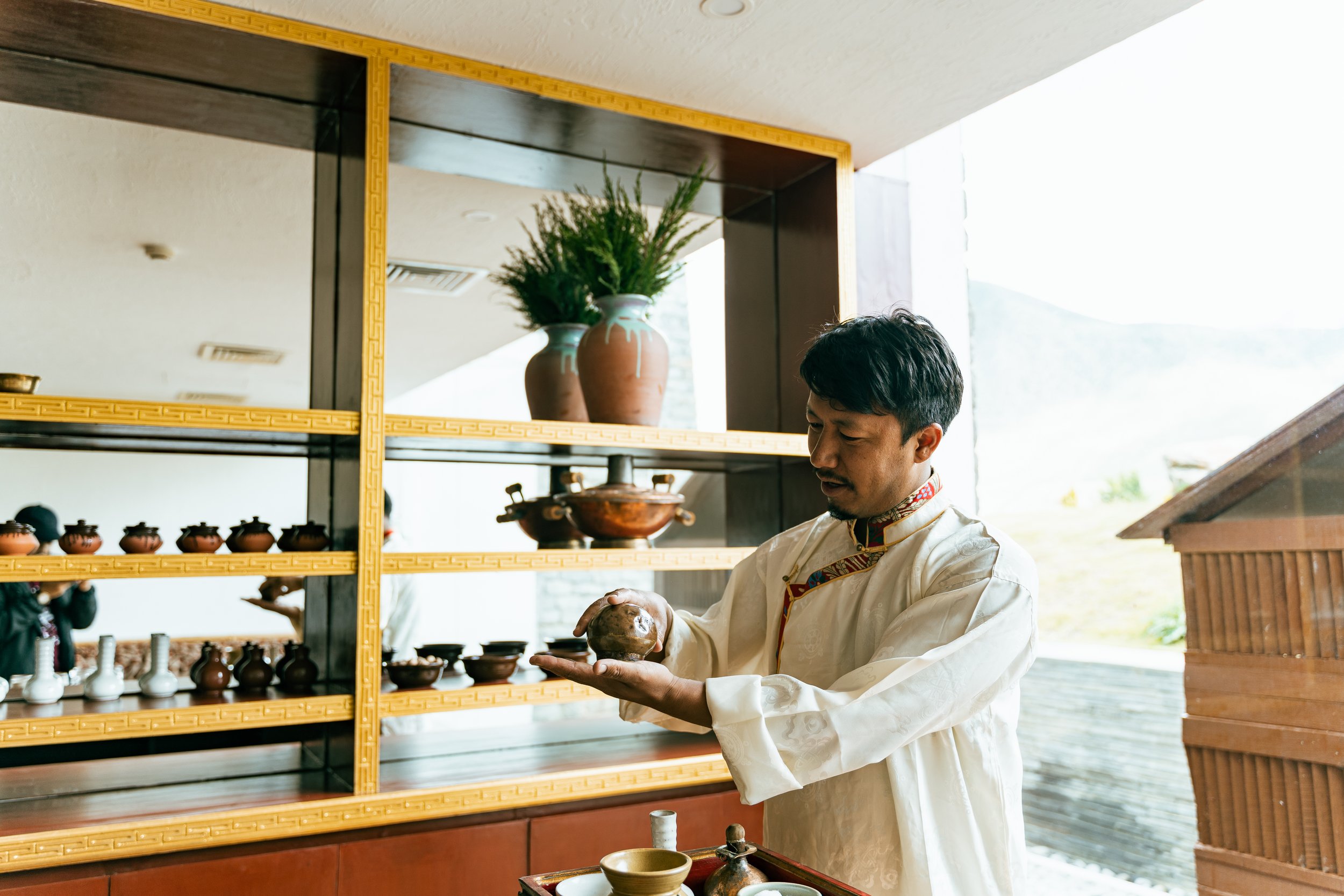
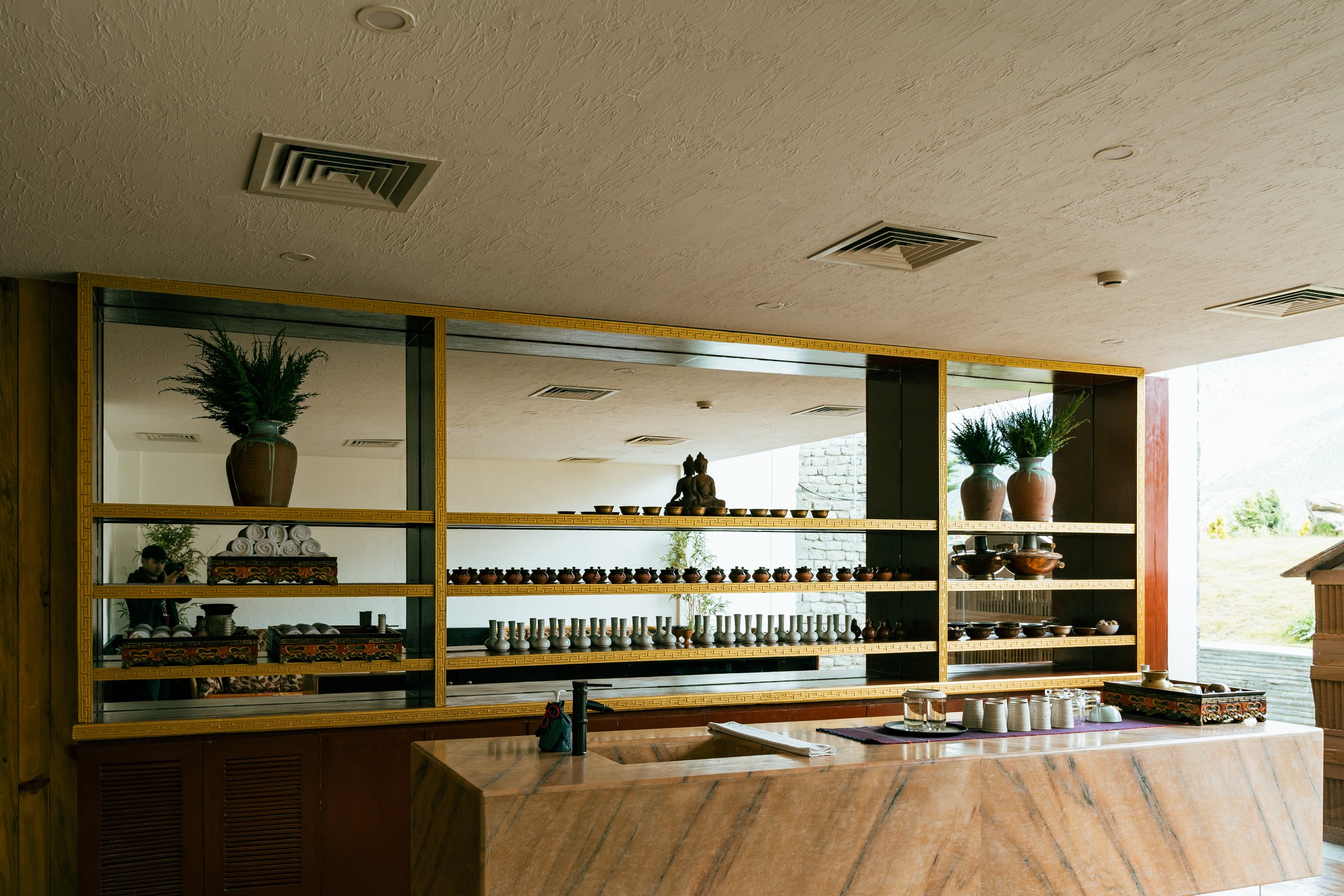
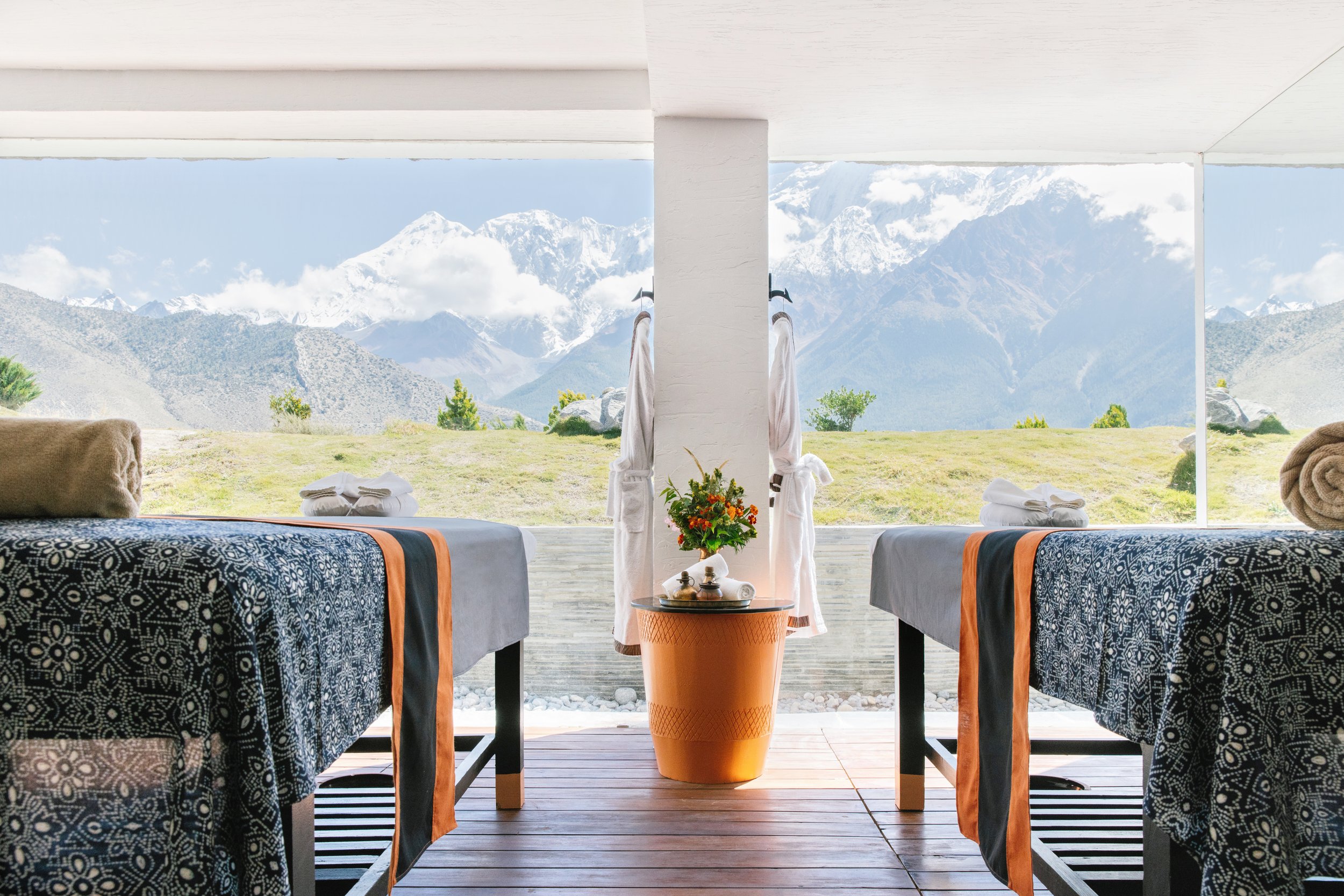
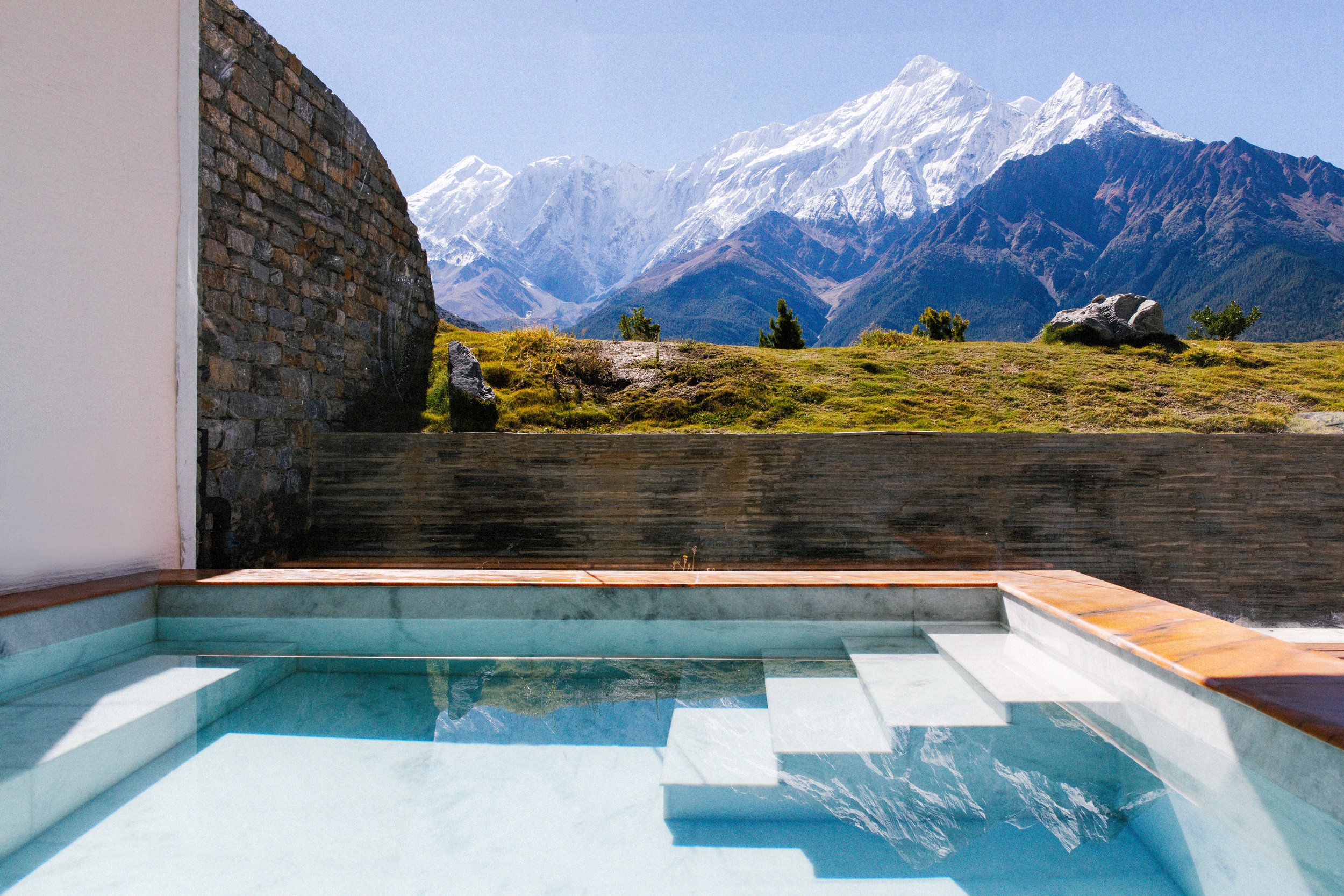
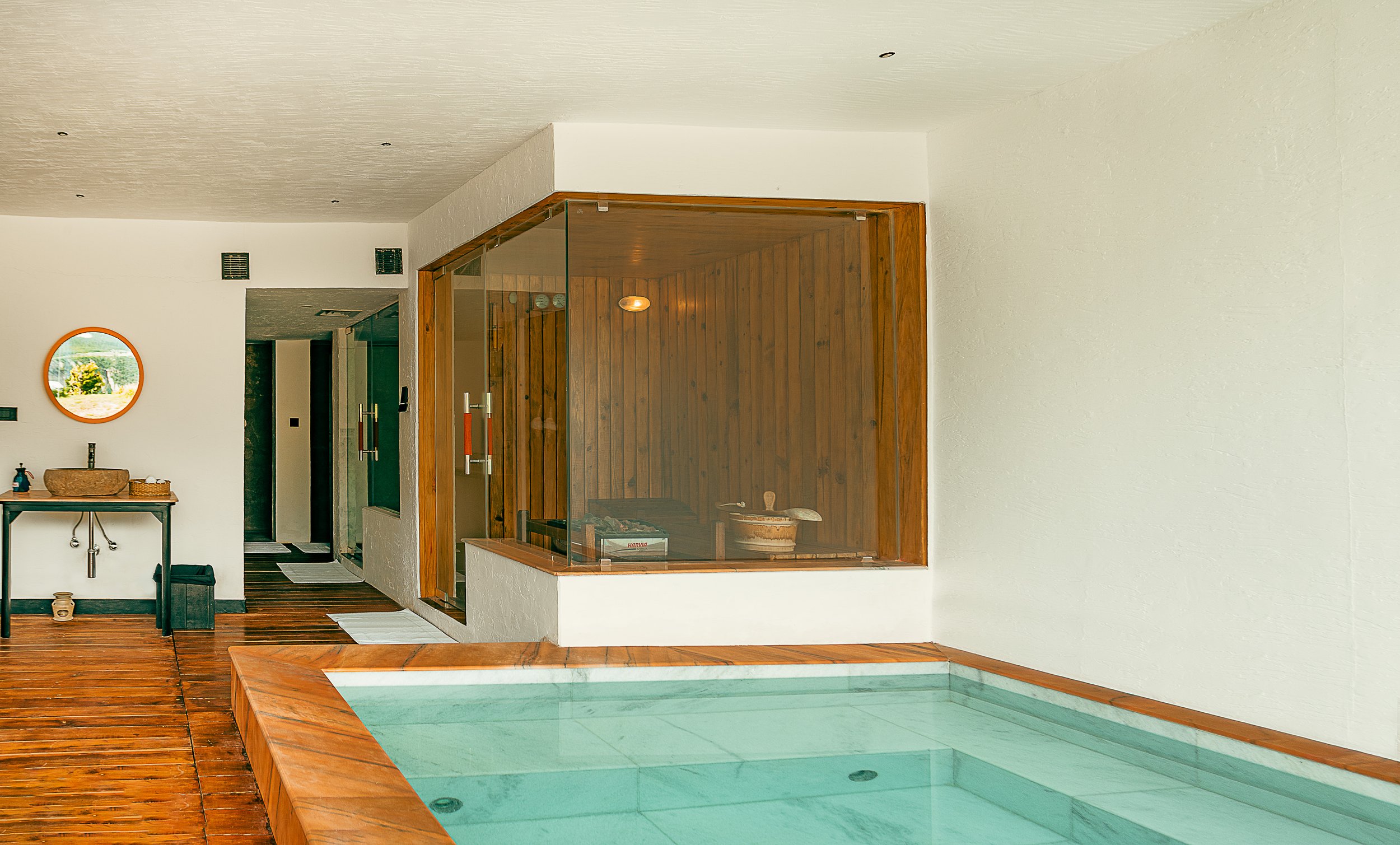
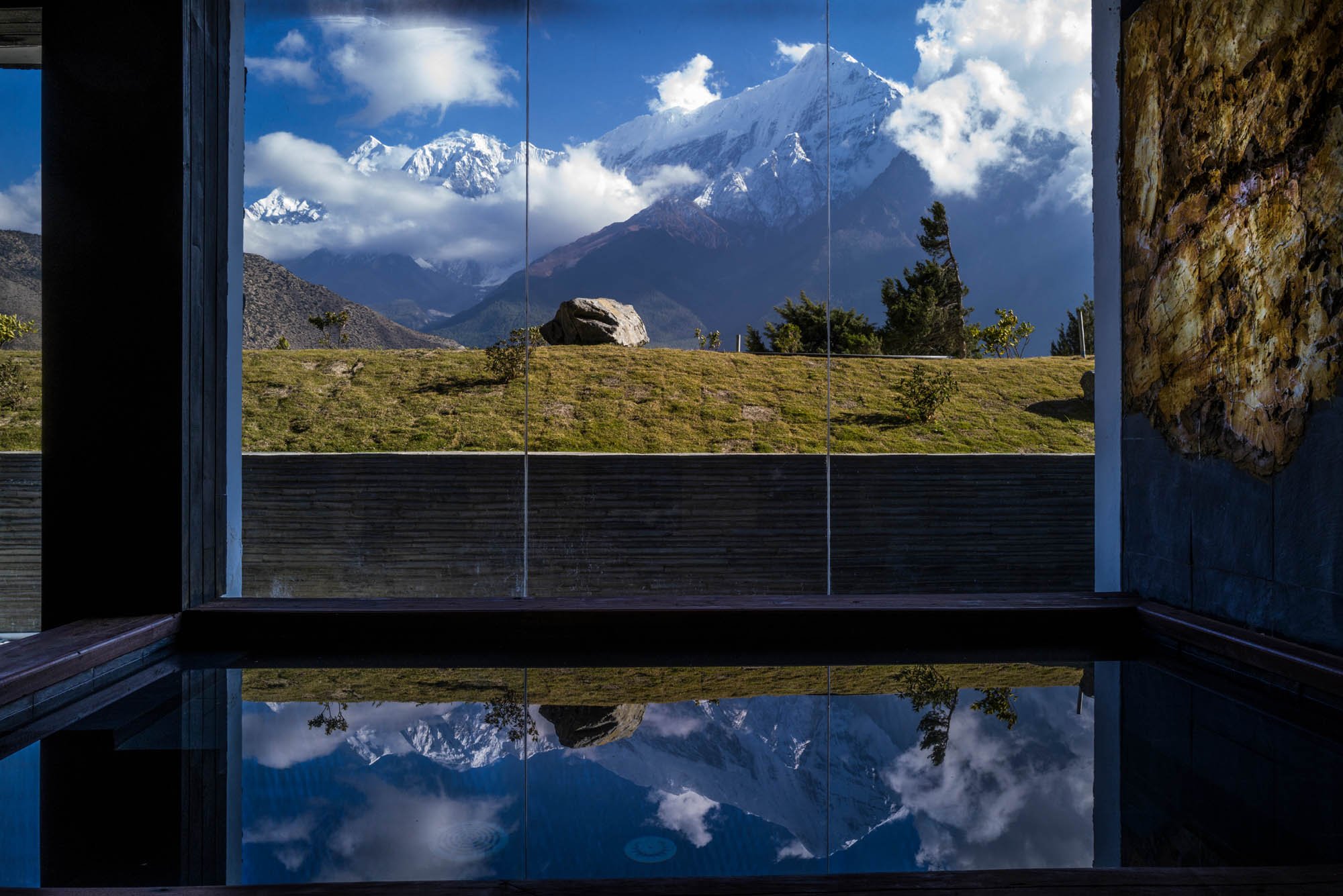
2. Kamala Lalchan: Born and raised in Mustang, Kamala Lalchan is deeply rooted in her community and is committed to promoting local culture and traditions. She is renowned for her expertise in Thakali cuisine and is a prominent figure in the culinary world. Kamala Lalchan owns Marpha Apple Bakery, famous for its delectable baked goods, organic coffee, and authentic Thakali dishes. She also runs a factory producing apple and apricot juice, emphasizing sustainable agriculture and utilizing local produce. As the chairperson of the Bjongmore Small Farmer Agriculture Co-operative in Marpha, she supports local farmers and agricultural development in the region. Guests at Shinta Mani Mustang can enjoy her culinary creations, immersing themselves in the rich flavours and traditions of Thakali cuisine. Kamala Lalchan's involvement extends beyond culinary expertise. She plays a pivotal role in supporting local farmers through the Bjongmore Small Farmer Agriculture Co-operative, contributing to sustainable agriculture and agricultural development in the region. Her leadership in the cooperative underscores her commitment to community empowerment and environmental sustainability.
Standout Guest Experiences: In Property and Surrounding Area
Jason M. Friedman shares, “The Mustang Valley, nestled low in the Himalayas, is a meeting place of cultures, ethnicities, and ecologies. It's a transition point, a crossroads, where the lush, dense rainforests of the southern-facing slopes of the Himalayas give way to the stark, dramatic desert landscapes of the Tibetan plateau, akin to the majesty of the Grand Canyon.
Yet, for a solitary observer like me, Mustang's greatest allure lies in its visual symphony of landscapes. They change with each passing moment, each arc of the sun, each gust of wind. It’s a breathtaking spectacle that constantly evolves and shifts, painting a picture that is never the same twice.
The pure pleasure of Mustang, for me, comes from this unending visual feast. To simply sit and drink in the sights, sights that never grow old or tiresome is to experience a sense of mesmerising awe. This is the deep-seated joy I find in Mustang.”
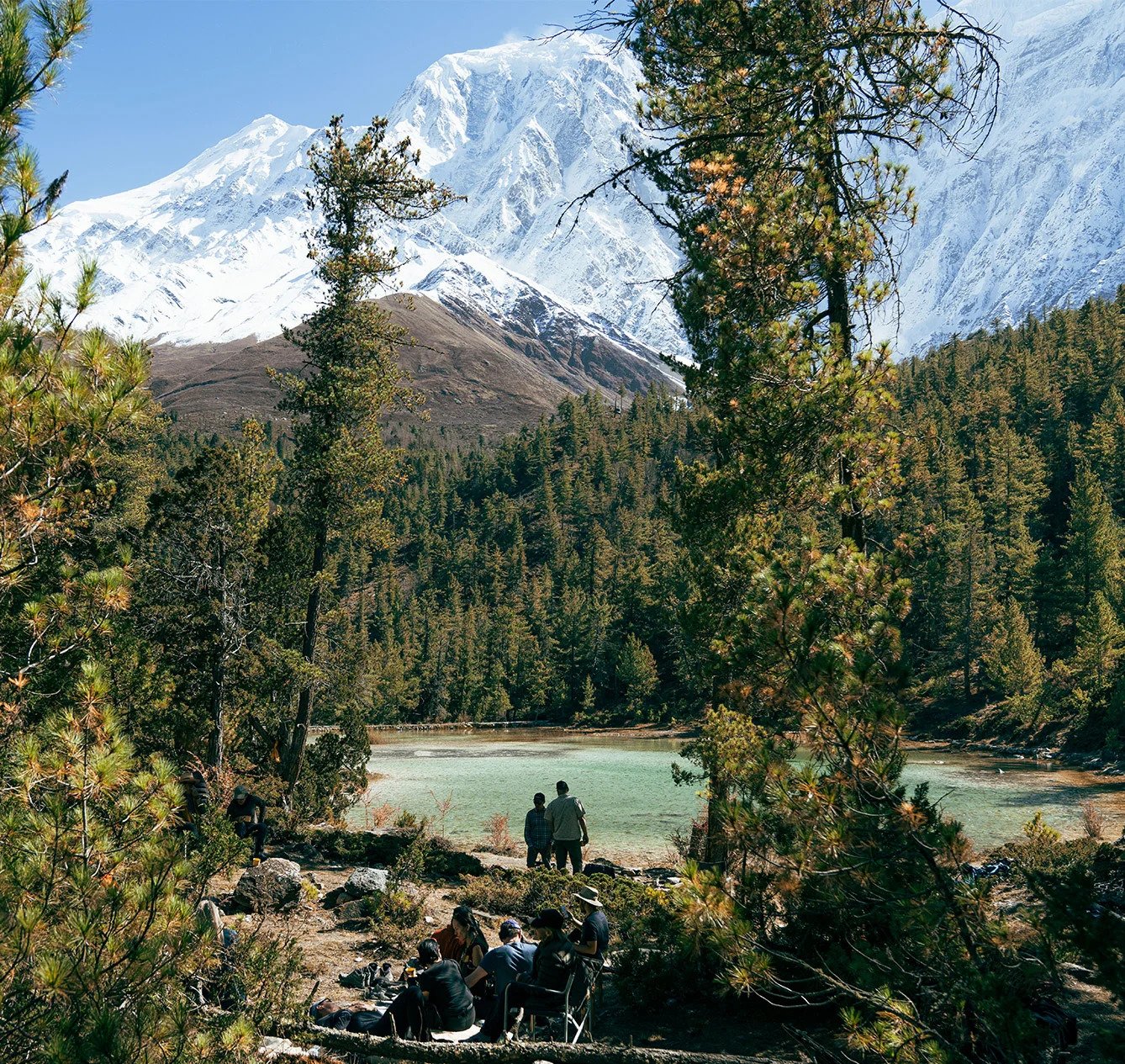
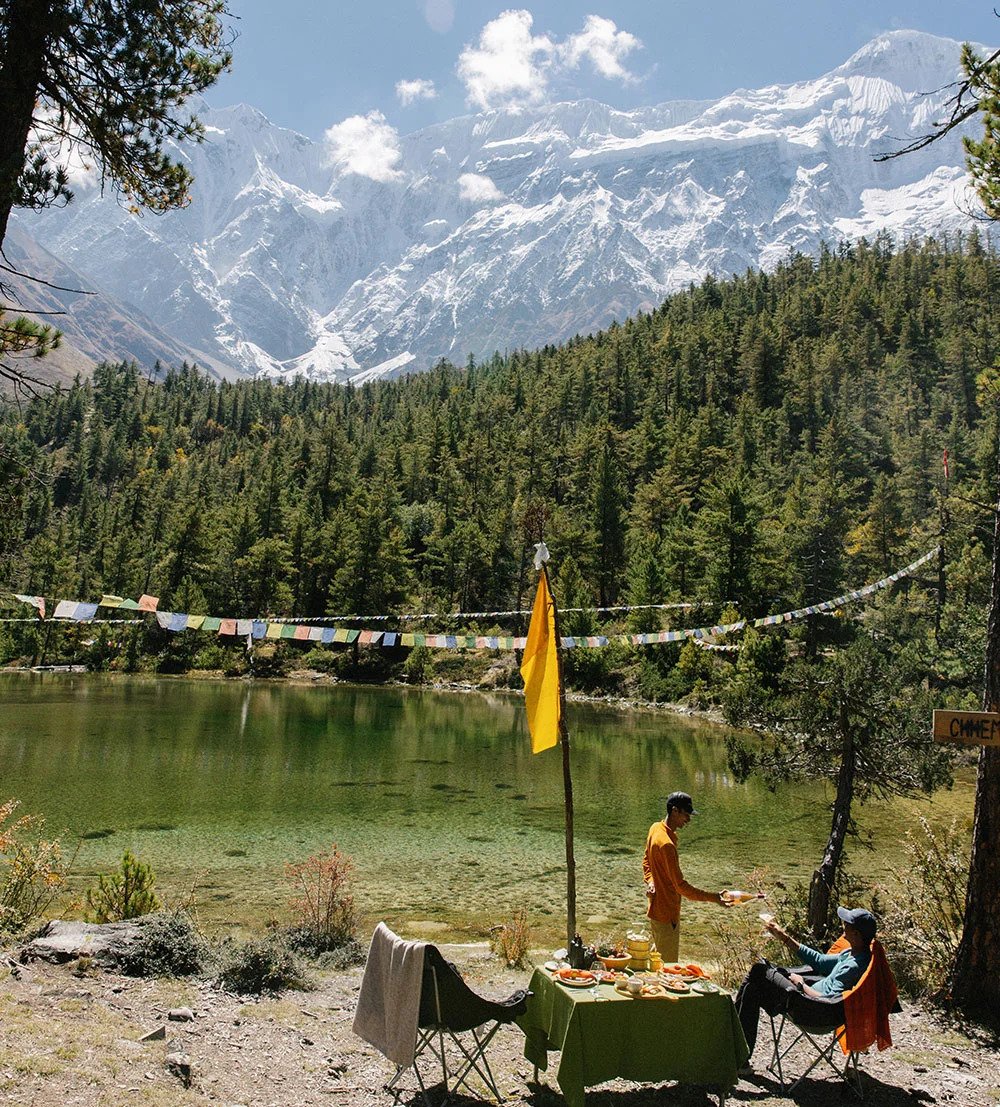
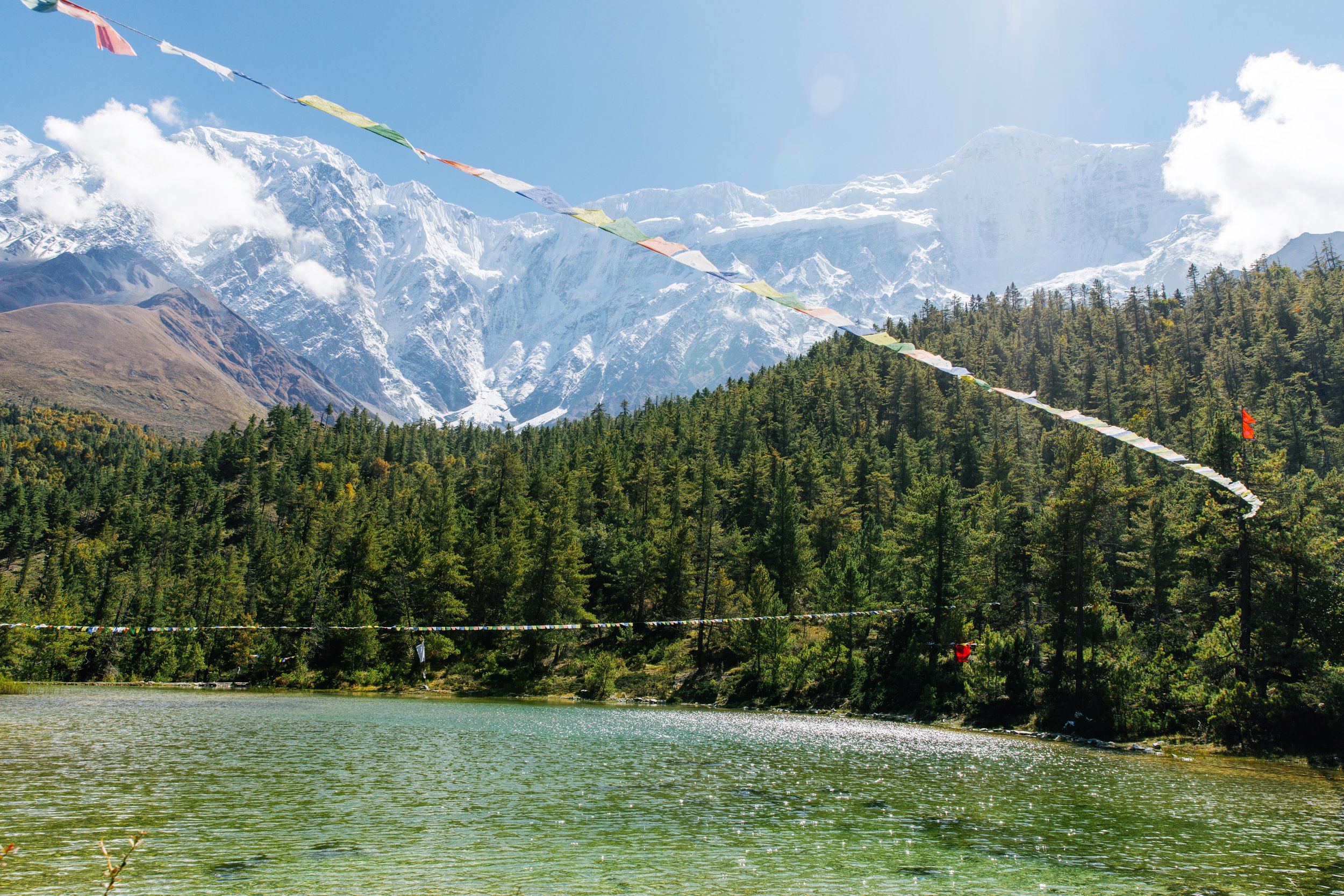
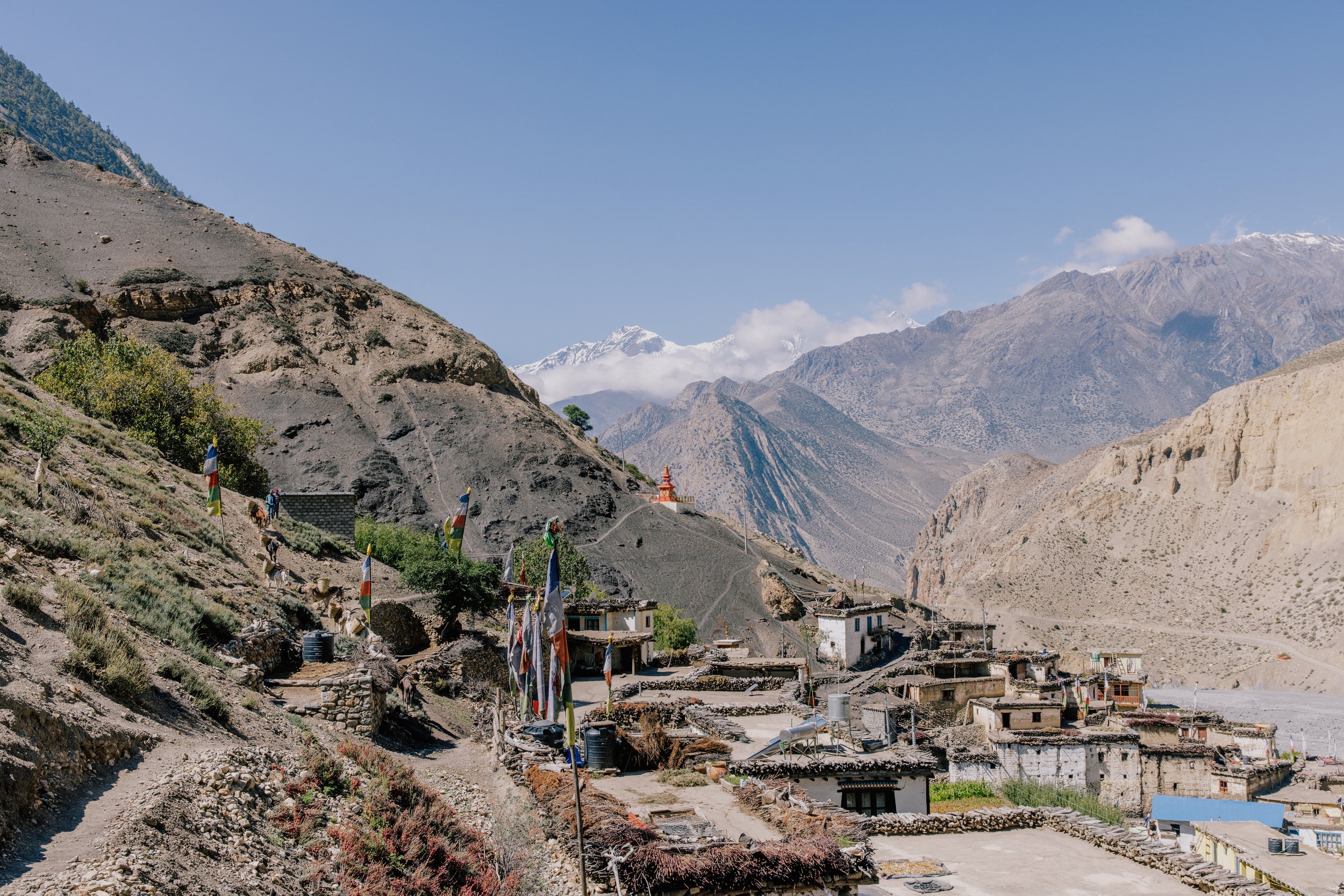
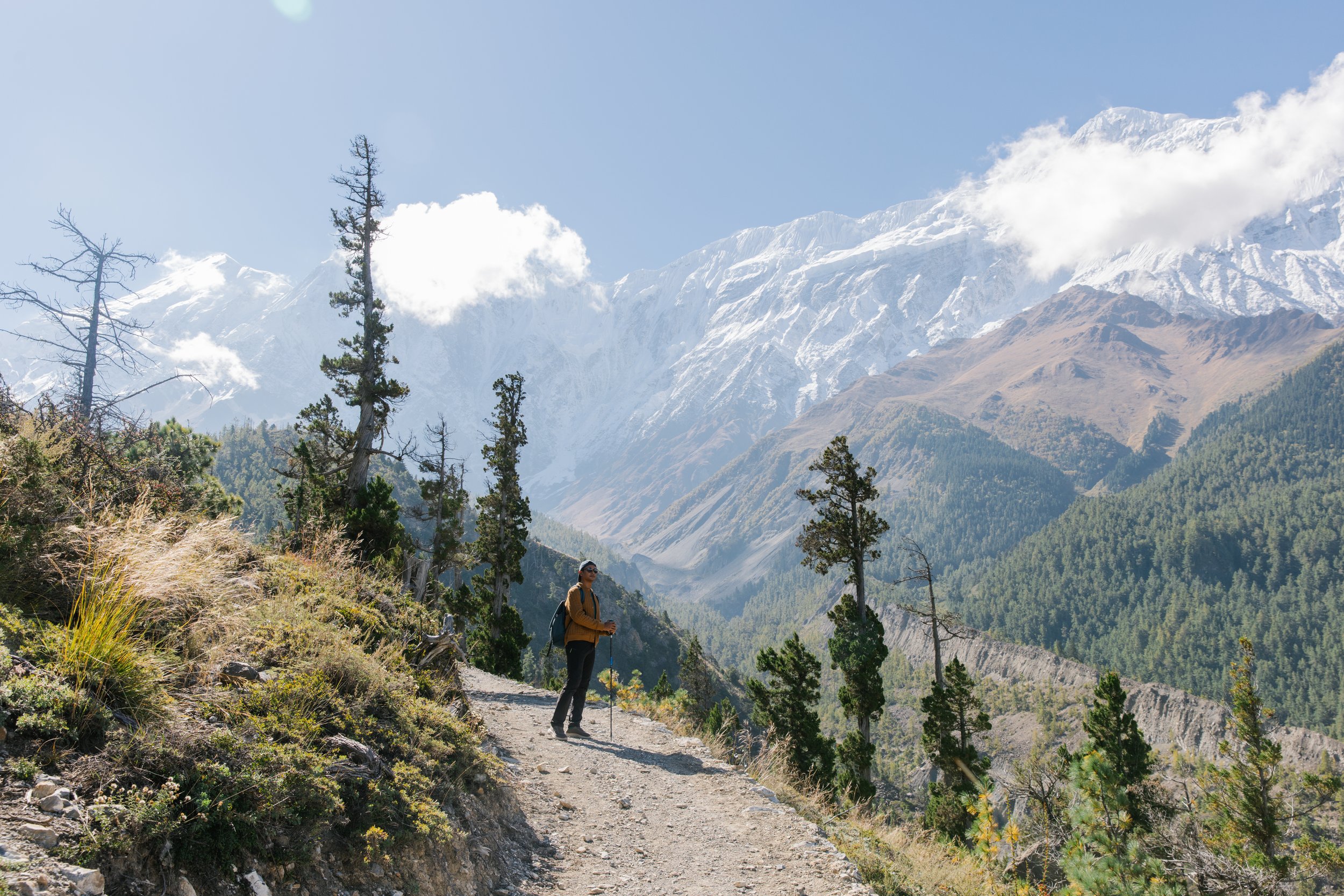
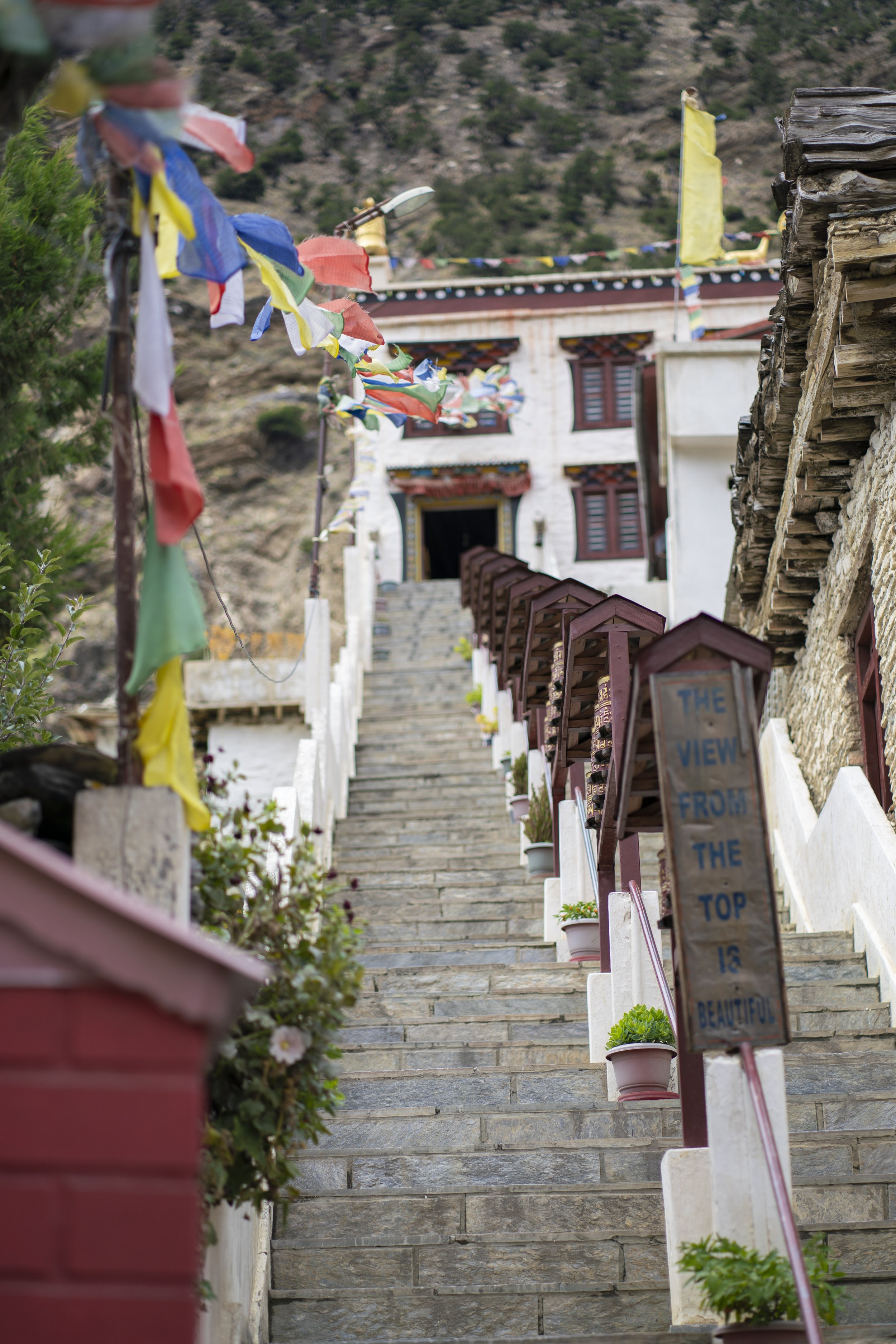
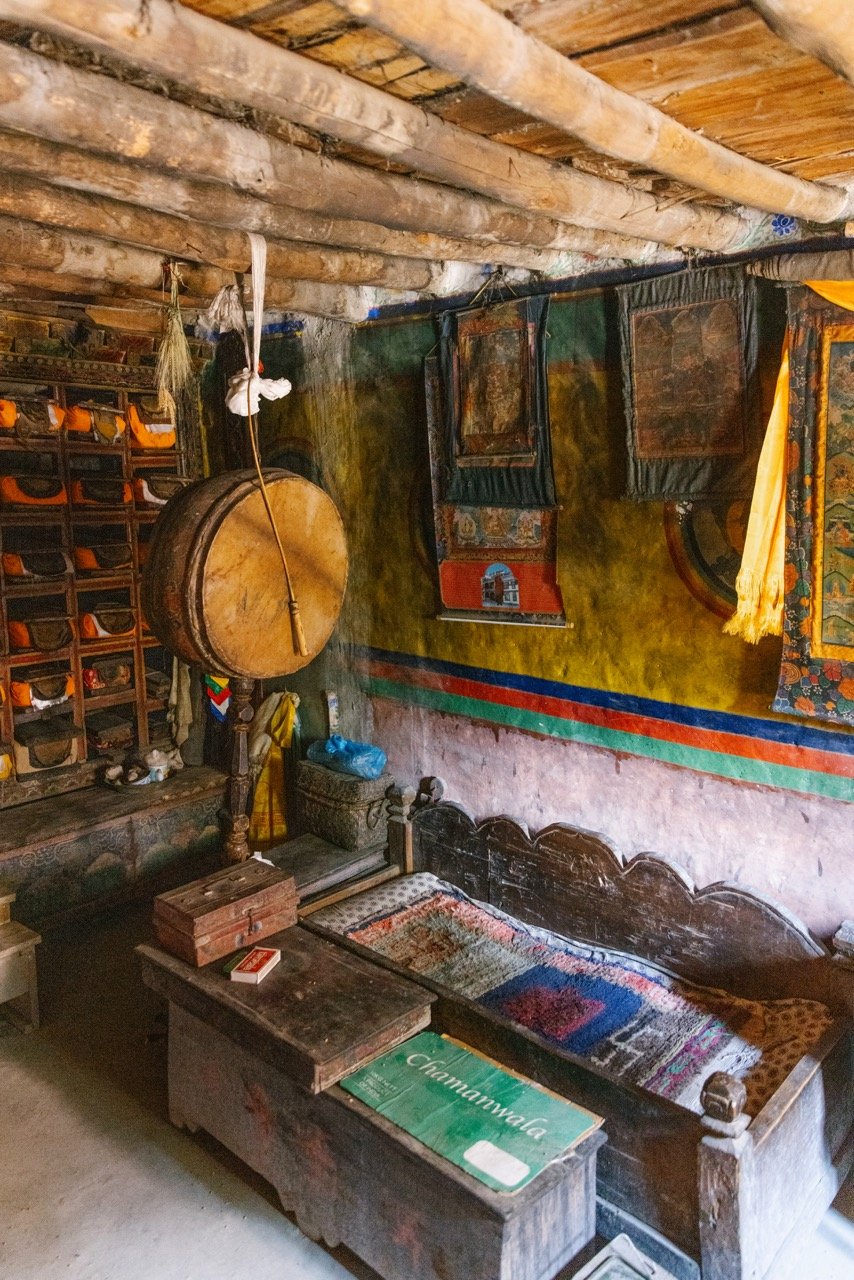
Role in Responsible Tourism: Preserving Cultural Heritage in Mustang Valley
We preserve and support the cultural heritage of the Mustang Valley in several key ways.
By creating high-value jobs that allow the youth of Mustang to have careers in their local communities, meaning they don't have to migrate to a big city to look for work. This preserves the future of their communities and cultures.
By supporting local communities through our Farmers and Foragers Program
By including local communities in our core activity program, they can interact with our guests and have their local businesses supported by our programs.
All of our guest programming is about allowing our guests to have a deeper sensory experience with the cultures of Mustang.
Sustainability Practices: Eco-friendly Initiatives and Community Support
1. Sourcing Locally and Sustainably: Shinta Mani Mustang prioritises working with local farmers and foragers to source fresh, seasonal produce at fair prices. They have their own small farm on the property and collaborate with other farms associated with their properties to guarantee high-quality ingredients.
2. Collaboration with Established Brands: The property collaborates with renowned restaurants in Kathmandu to infuse their culinary expertise into their menu offerings, ensuring an elevated gastronomic experience for guests.
3. Freshness and Quality Assurance: Leveraging their logistics partner, Thamserku Expeditions, they ensure the freshest ingredients for their kitchen, maintaining a commitment to sourcing the finest produce.
4. Farmers and Foragers Programme: Shinta Mani Mustang has established the Farmers and Foragers Program to promote sustainable practices, preserve cultural heritage, and support the local community. This program includes:
Community Empowerment: Providing a reliable market for local farmers and foragers to enhance their livelihoods.
Sustainable Sourcing: Adhering to environmentally friendly cultivation methods to promote biodiversity and reduce the carbon footprint.
Culinary Excellence: Incorporating fresh, locally sourced ingredients into menus to enhance the culinary experience and showcase the region's gastronomic heritage.
Program Components: Collaboration and partnership with farmers, seasonal menu development, training sessions, cultural integration, environmental stewardship, and guest engagement.
Overall, Shinta Mani Mustang's sustainability practices include responsible sourcing, community empowerment, cultural preservation, and environmental stewardship, all integrated into their culinary experiences and operational philosophy.
Want to experience the Mustang Valley in its truest shape, form, and function? A stay at Shinta Mani Mustang is all you need to immerse yourself in the untamed beauty, rich heritage, and sophisticated luxury that define this extraordinary destination. Book with us to get special prices, extra benefits and a truly extraordinary experience.



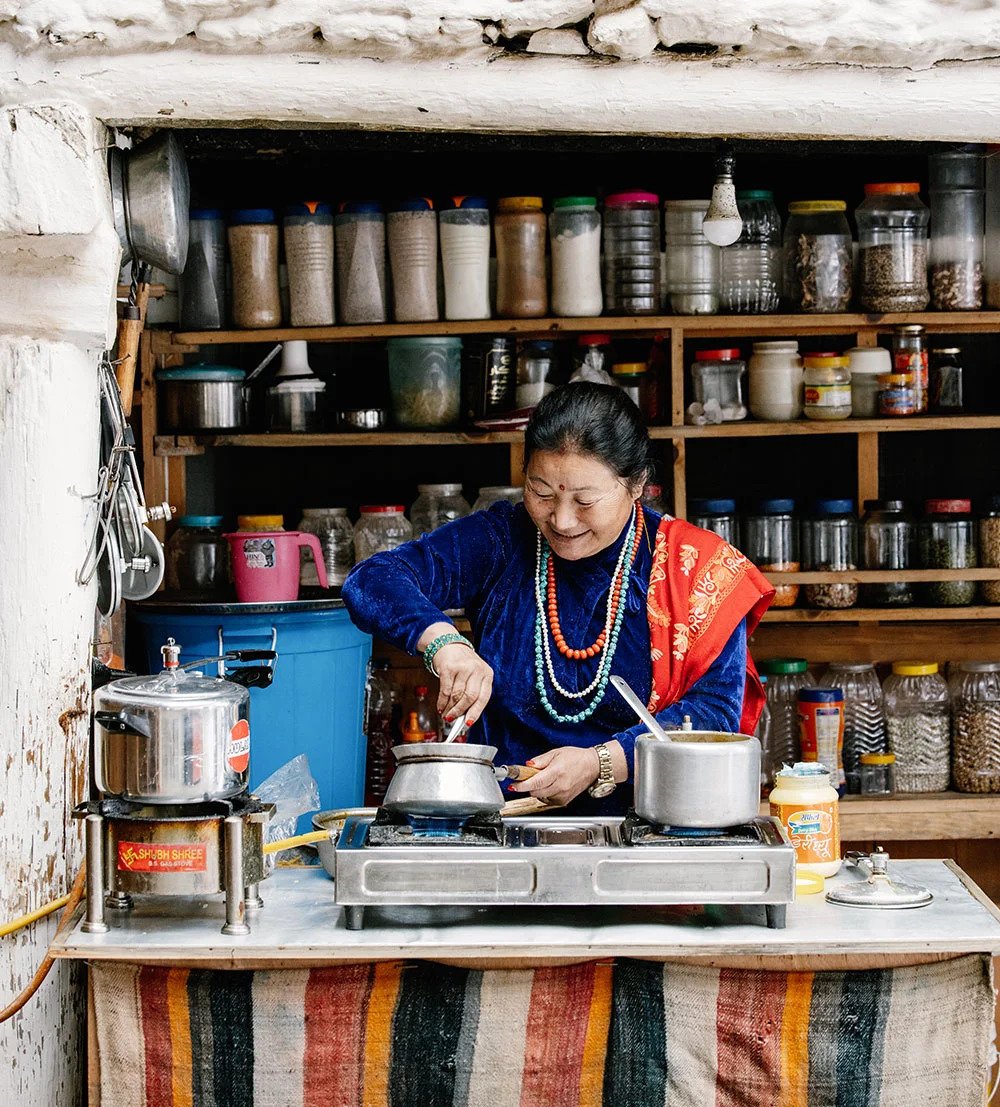
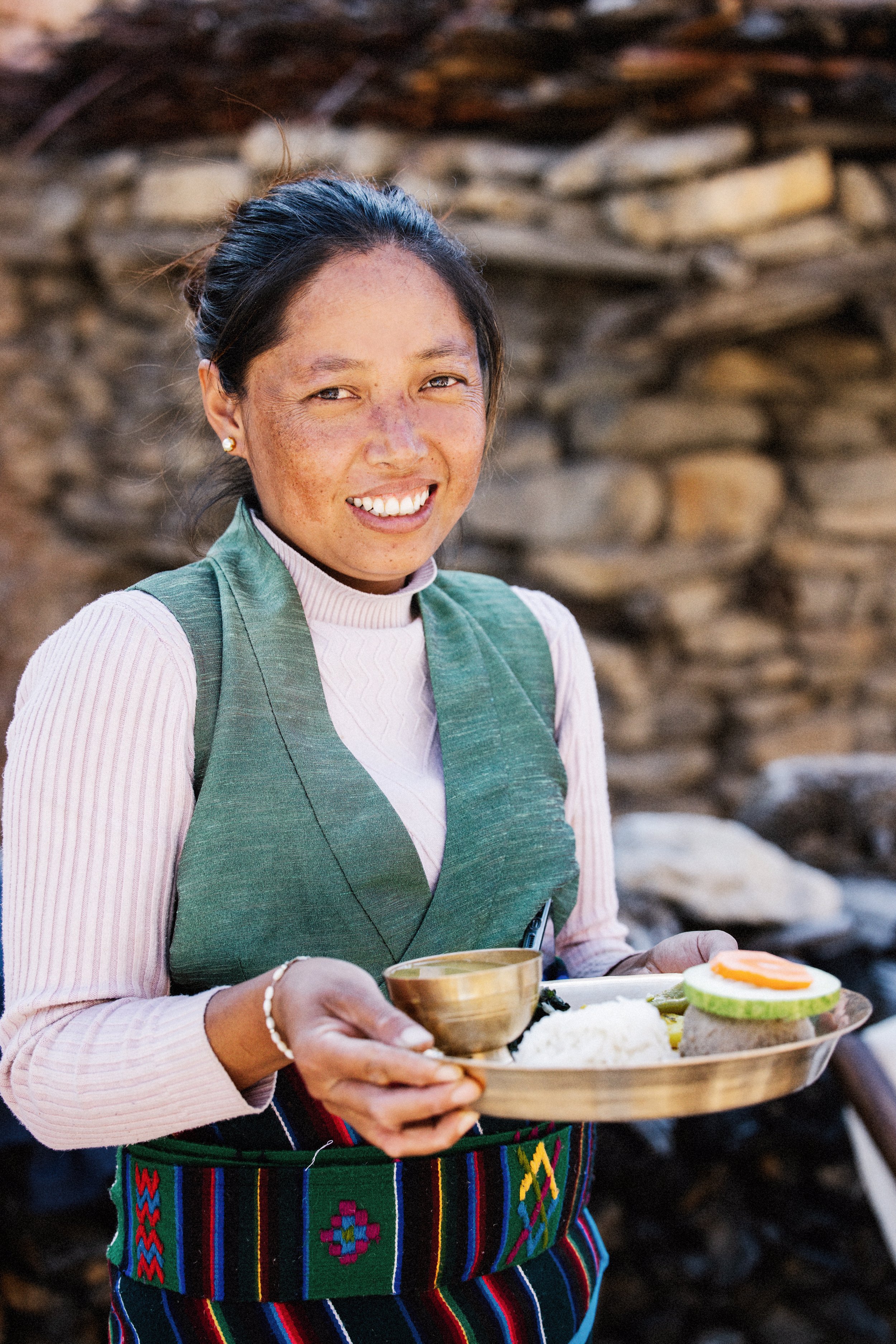
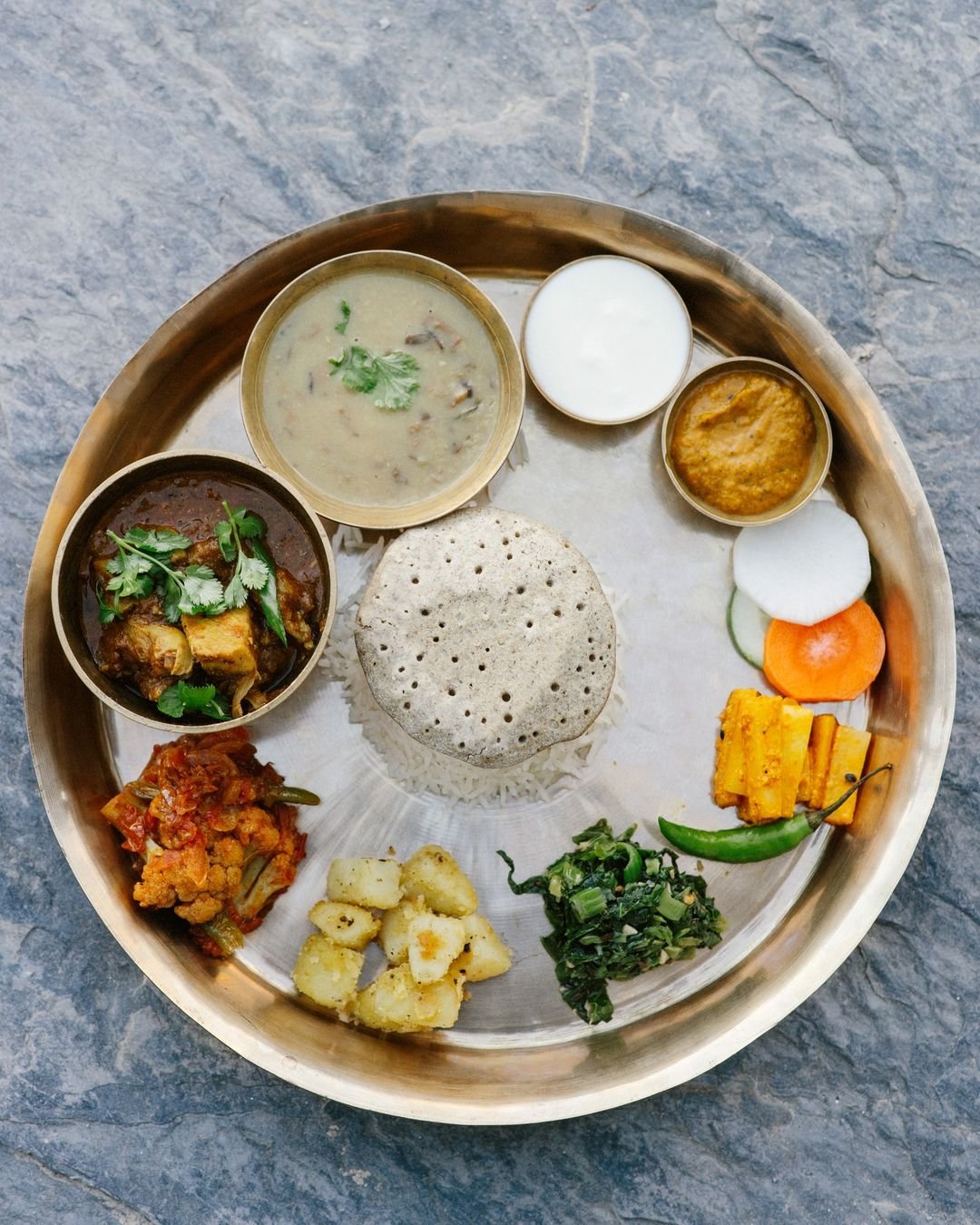
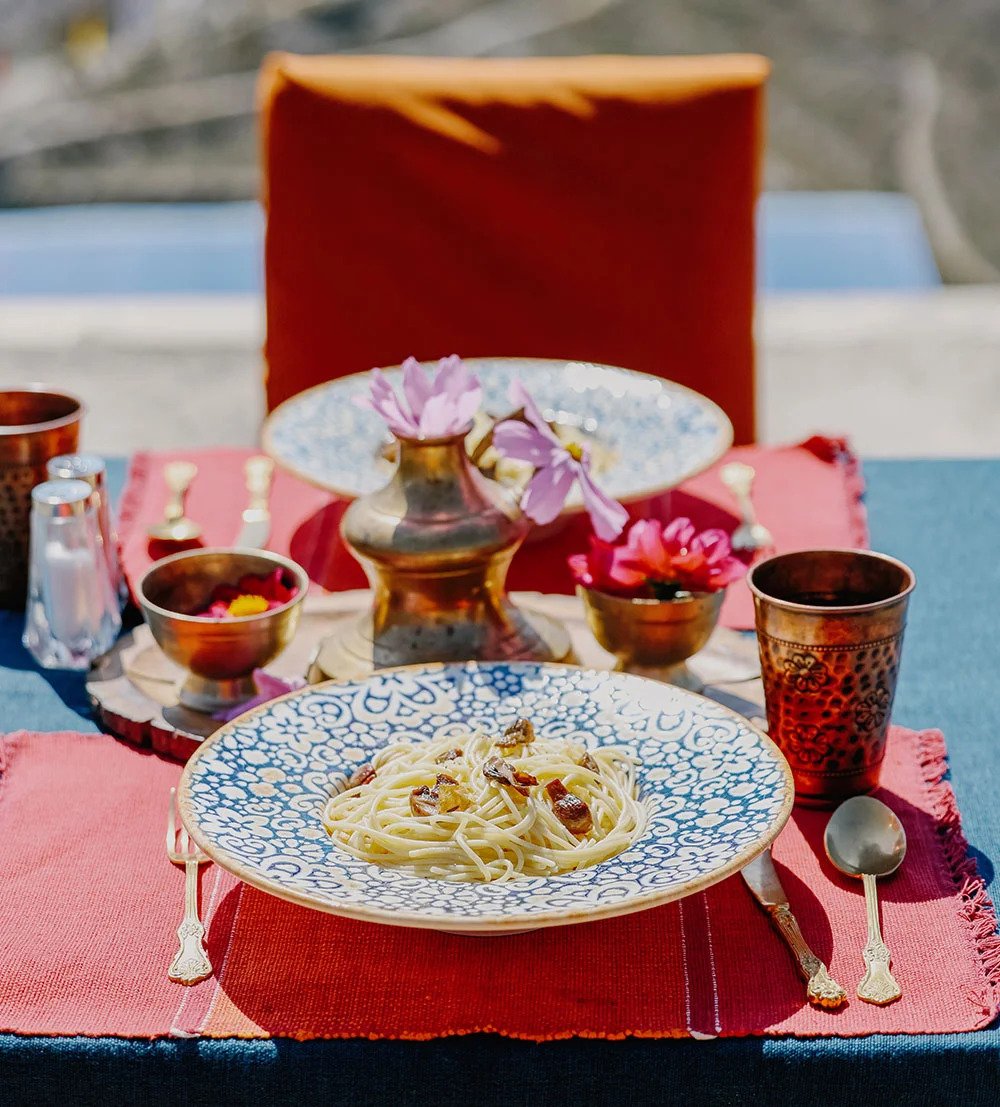
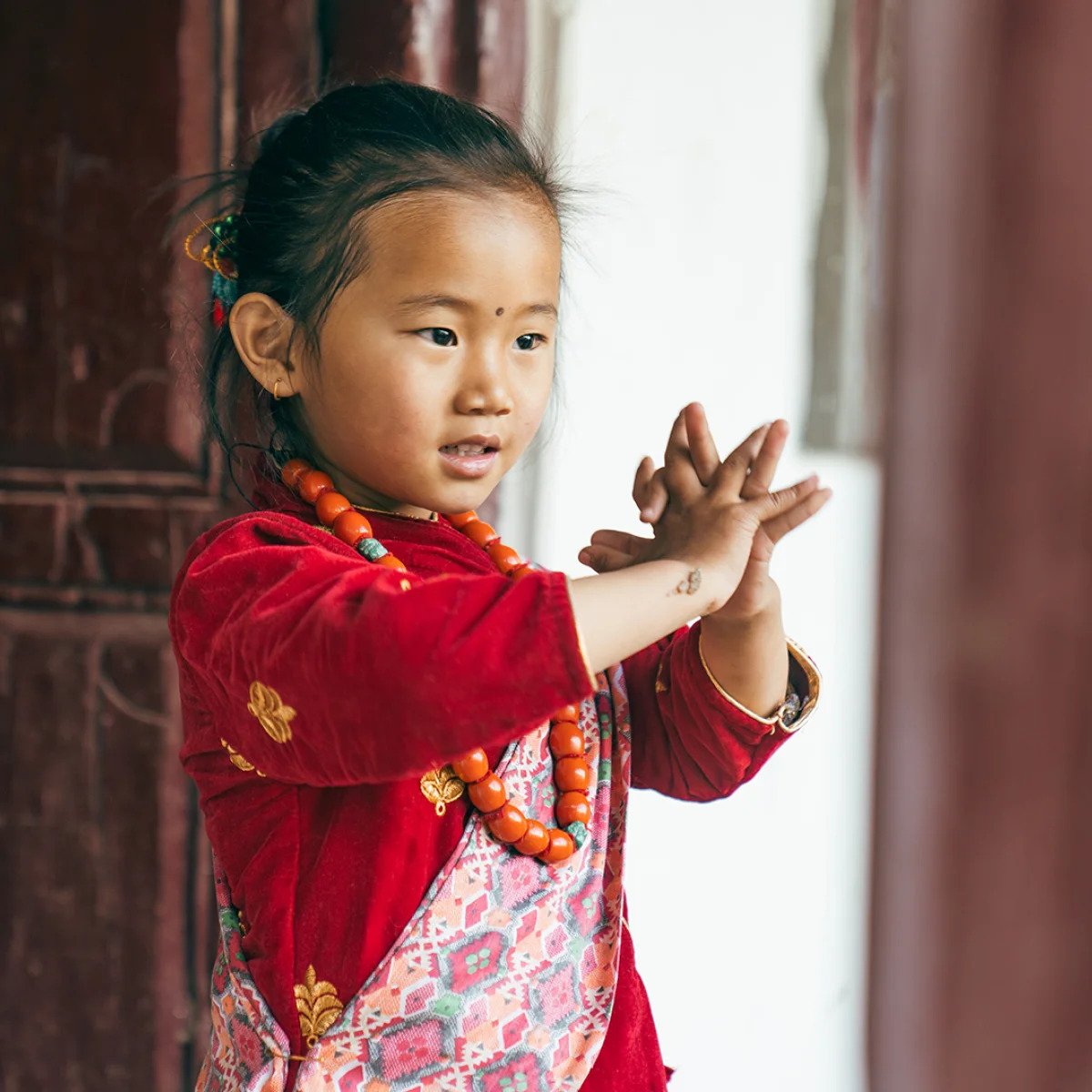
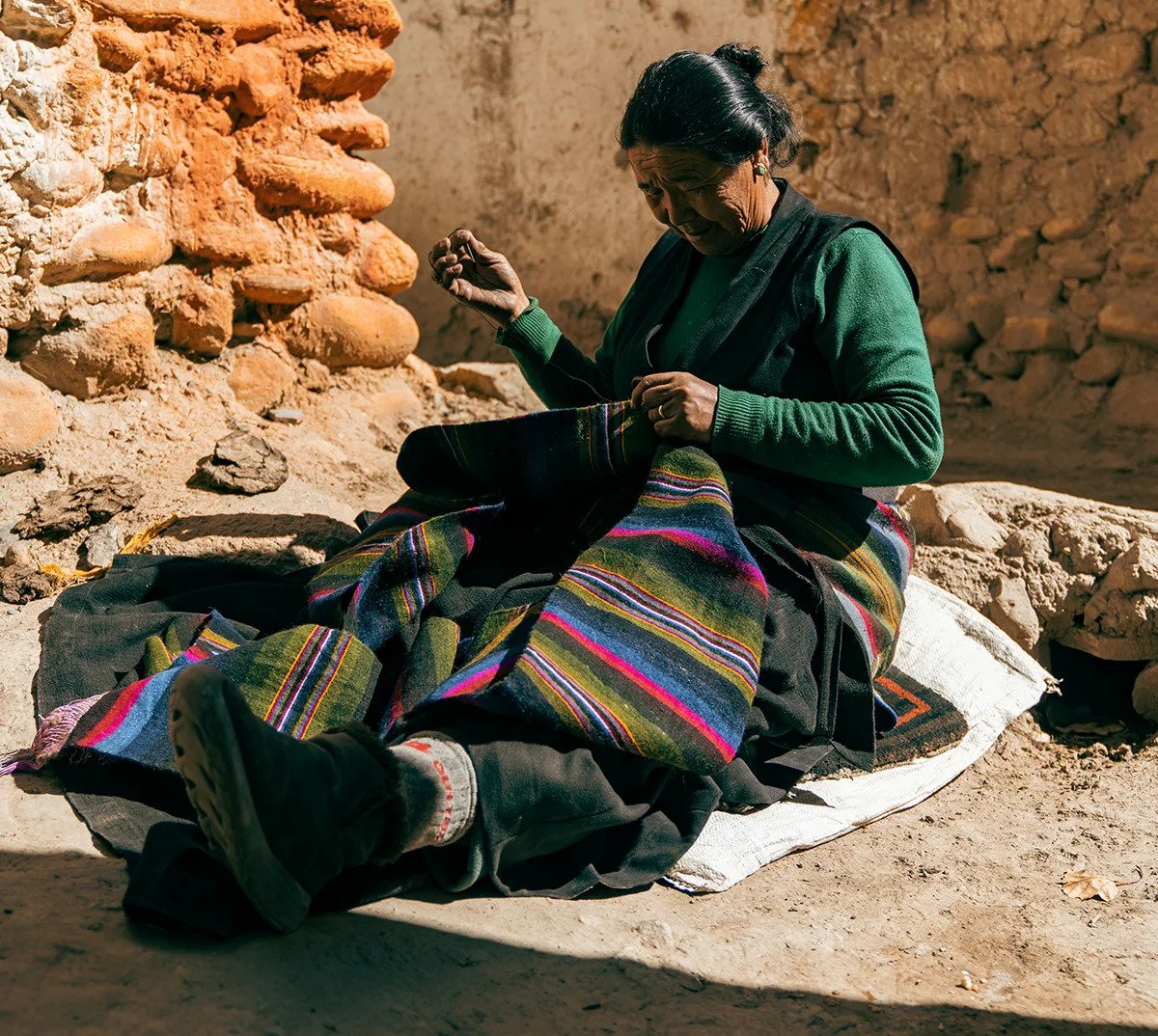
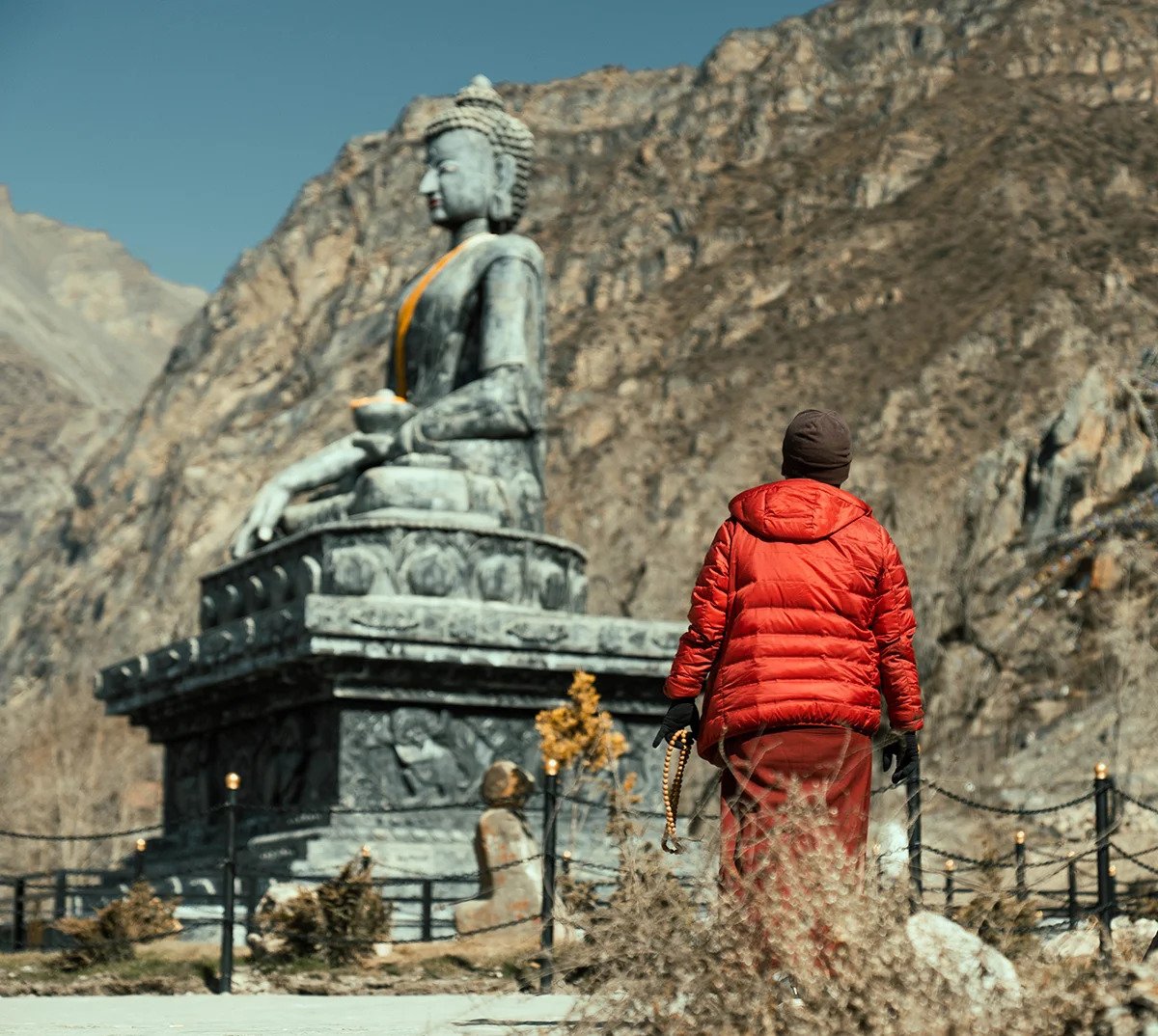
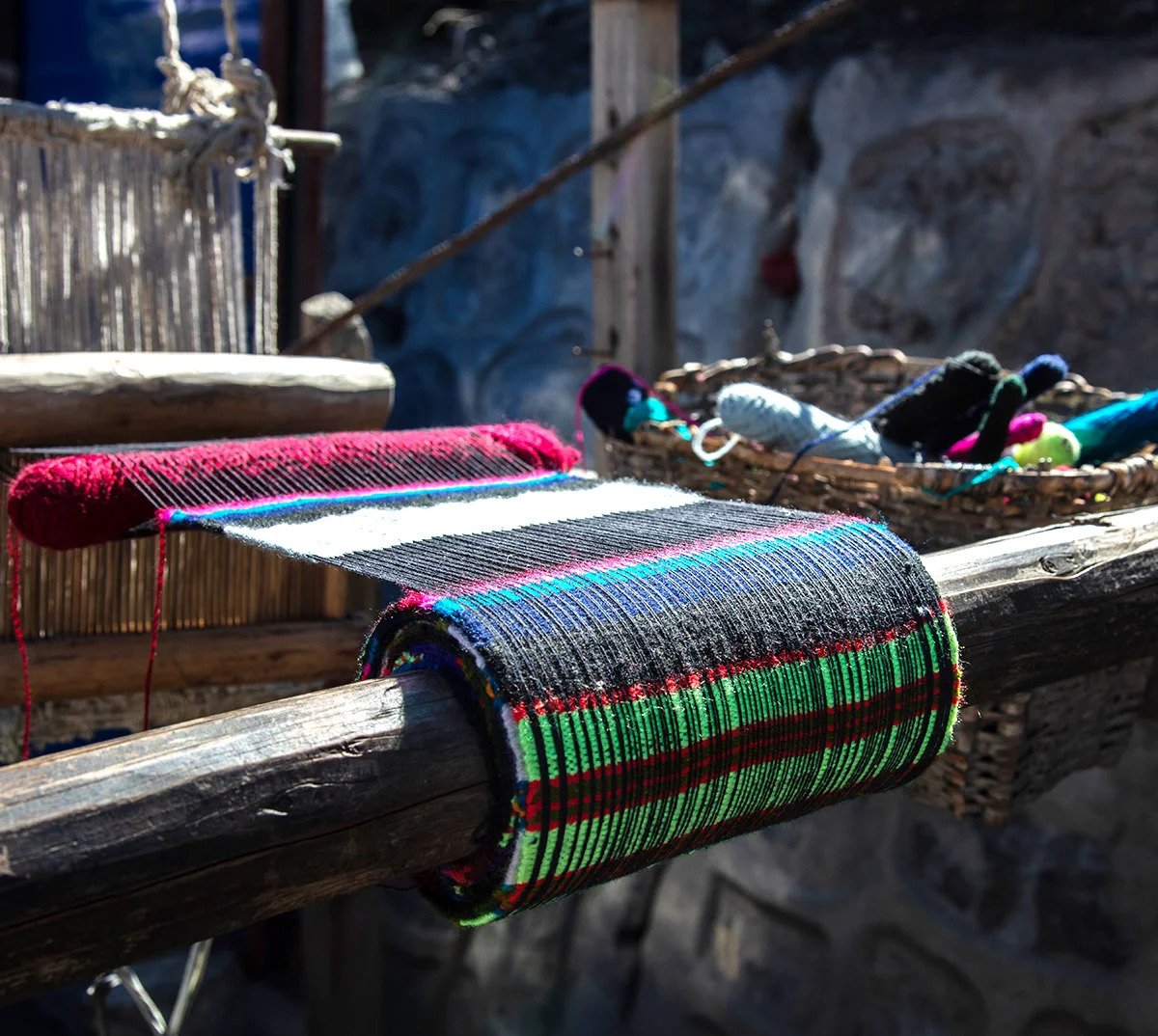








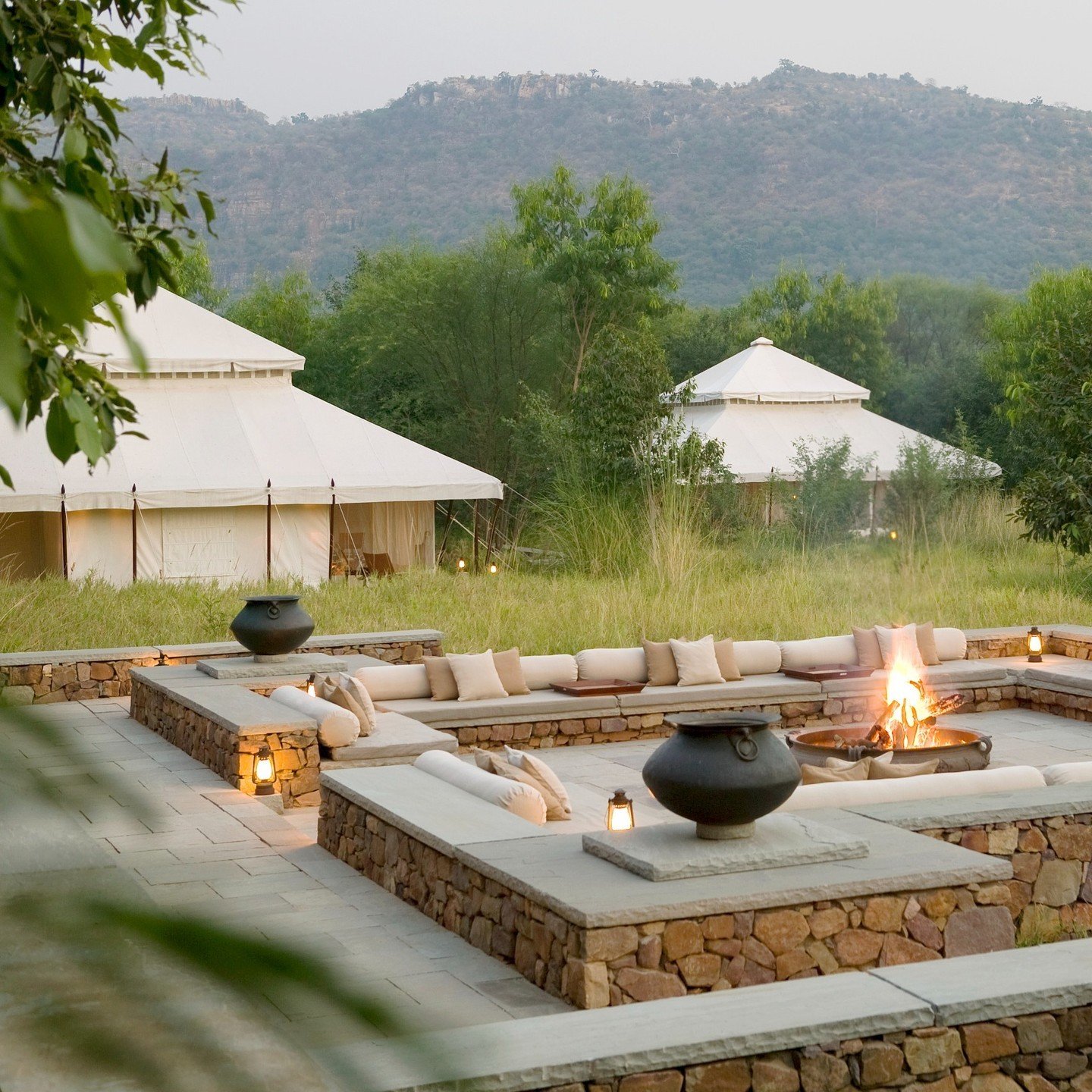




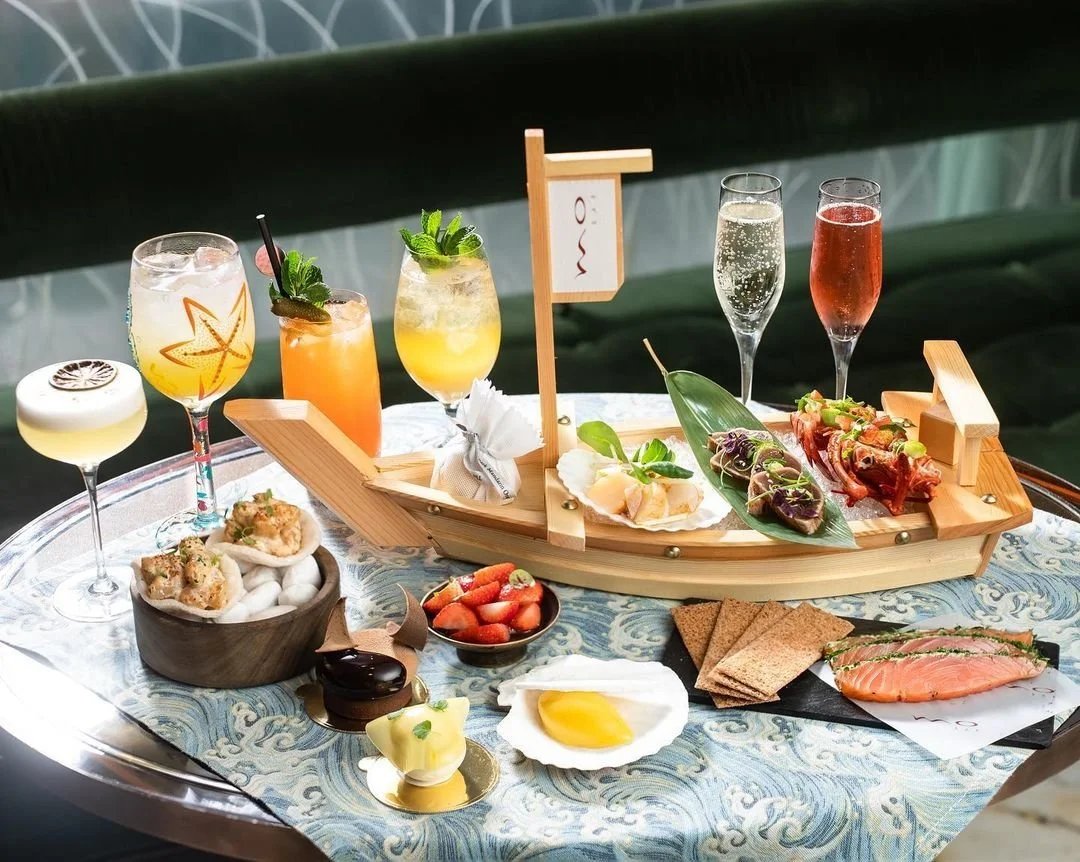
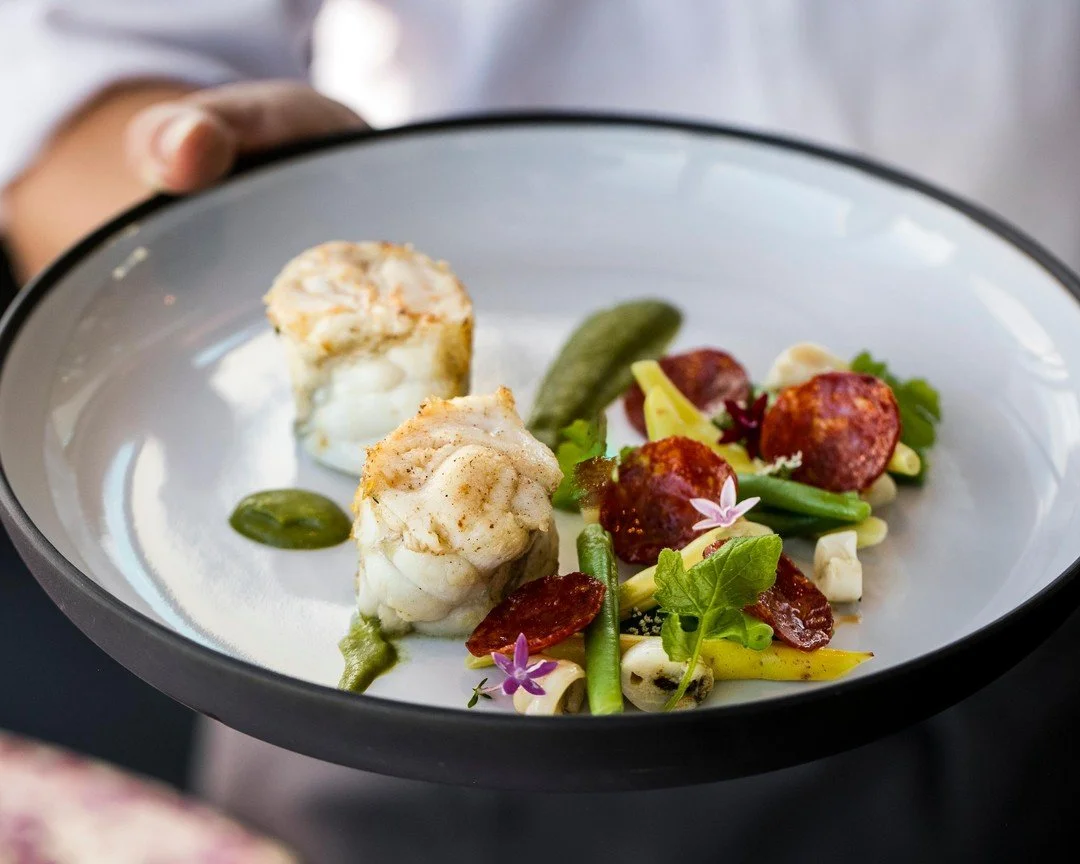


Securing Michelin-star tables is not everyone’s feat, especially in an urban metropolis like NYC, so we chat with Aman New York’s Concierge Team to know the failproof ways they secure tables at starred restaurants for their guests without breaking a sweat.